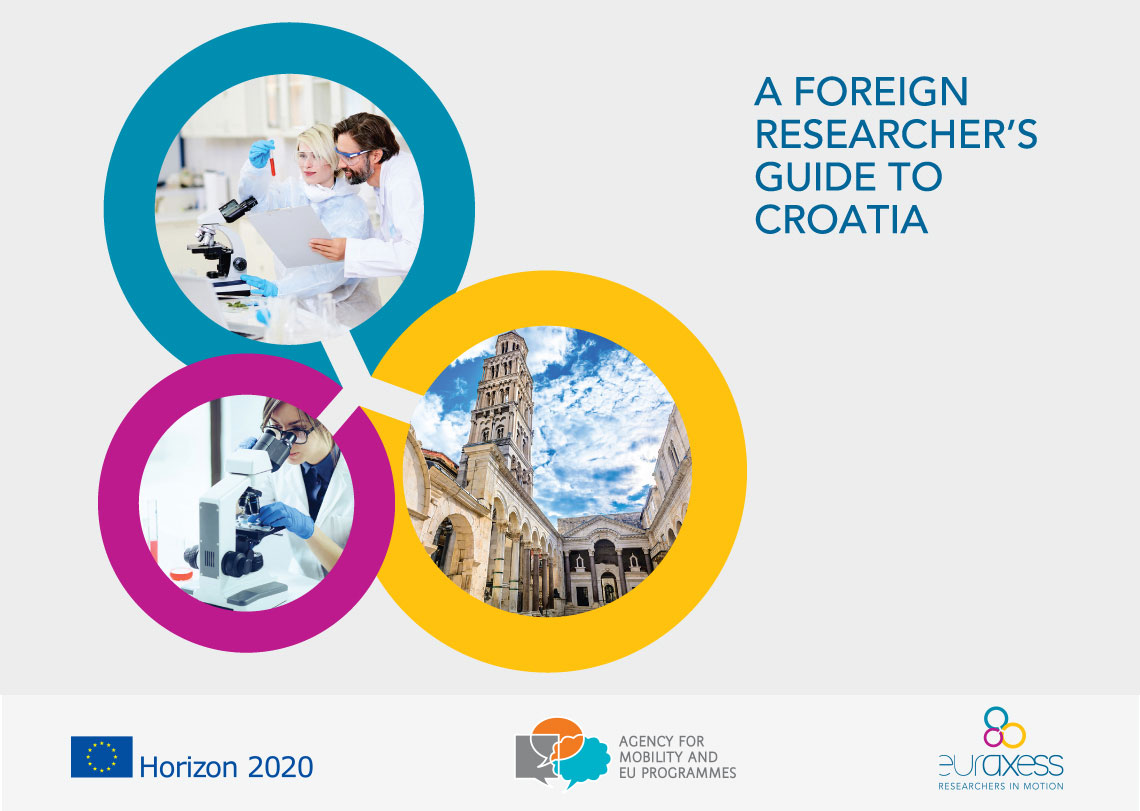
The aim of “A Foreign Researcher’s Guide to Croatia” is to help researchers from all over the world plan their scientific research in Croatia, and to ensure their stay is a pleasant and successful one. This guide offers lots of practical information about everyday life and guidelines for dealing with the formalities of employment and work in Croatia. “A Foreign Researcher’s Guide to Croatia” is published by the EURAXESS Service Centre of the Agency for Mobility and EU Programmes.
Information provided in this Guide is authorized by competent authorities of the Republic of Croatia. Unauthorized practical information is specifically indicated in the form of the cloud.
Disclaimer: The descriptions of administrative procedures in the Republic of Croatia given in this guide are to be used for informational purposes only. Recommendations in this publication do not substitute official sources of information and the information given by the official public bodies should be taken into account in all cases. The Agency for Mobility and EU Programmes accepts no liability for the content of A Foreign Researcher's Guide to Croatia” or for any consequences of any actions taken on the basis of the information presented herein.
Updated information can be found at the Croatian EURAXESS Portal www.euraxess.hr (in English and Croatian).
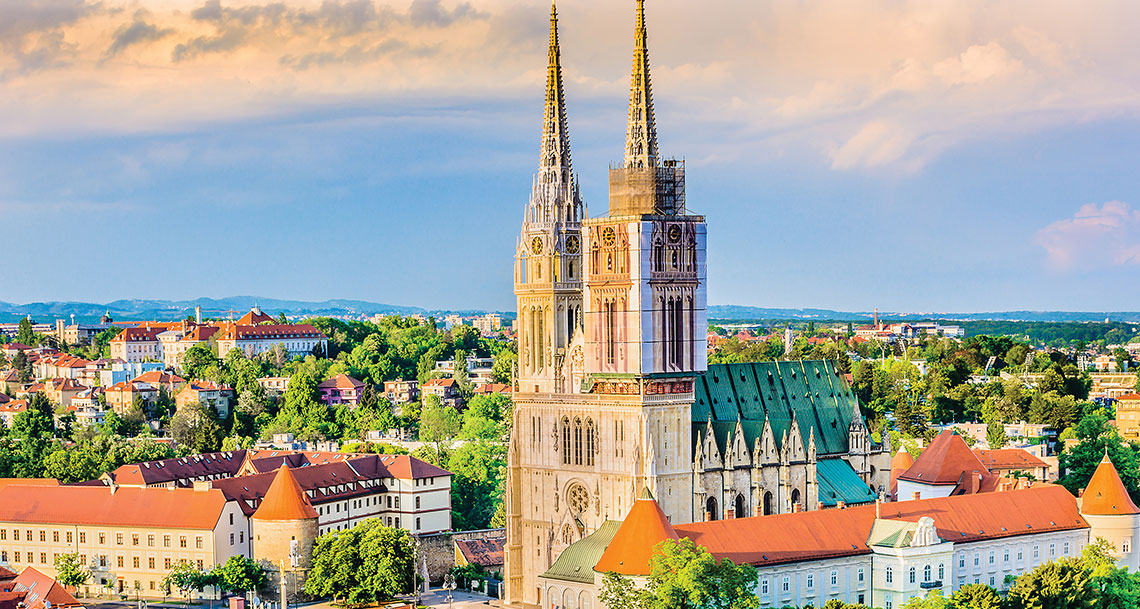
About Croatia
1.1. Basic facts
|
Basic facts |
|
|
Land area |
56 594 km² |
|
Population |
4,3 million (2011 census) |
|
Political System |
Parliamentary democracy |
|
Territorial Organization |
20 counties and the City of Zagreb |
|
Capital |
Zagreb (790 017 inhabitants) |
|
Official Language |
Croatian |
|
Official Script |
Latin |
|
Currency |
Kuna (HRK) = 100 Lipa |
|
Average Exchange Rate |
EUR 1 = HRK 7,50; USD 1 = HRK 6,50 |
|
International Telephone Code |
+385 |
|
Internet Country Code |
.hr |
|
Time Zone |
Central European Time (CET) – GMT+1 |
|
Climate |
Continental and Mediterranean |
|
Electricity |
220 V, 50 Hz |
Croatia is situated in South East Europe, on the crossroads of Central Europe and the Mediterranean, stretching over 56 594 sq km with the coastal sea area of 31 479 sq km. Croatia neighbours five countries on a 2 370 km long land border: Bosnia and Herzegovina, Slovenia, Hungary, Serbia, and Montenegro. Croatia also shares sea borders with Italy, Slovenia, Bosnia and Herzegovina, and Montenegro. The Croatian Adriatic coastline is one of the most indented coastlines in Europe, next to the Norwegian fjords. 1 246 islands and islets spread over the 6 278 km (1 800 km of mainland and 4 398 km of islands) long coastline and only 47 of them (6 %) are inhabited.
The capital of Croatia is Zagreb with the population of 790 017 (2011 census). It is also the administrative, cultural and educational centre of Croatia. Other larger cities include Split (pop. 178 102), Rijeka (pop. 128 624) and Osijek (pop. 108 048).
|
Useful telephone numbers |
|
|
Unique emergency number |
+385 112 |
|
Police |
+385 192 |
|
Fire brigade |
+385 193 |
|
Ambulance |
+385 194 |
|
Croatian Auto Club |
+385 1987 |
|
General information |
+385 18981 |
Croatian National Tourist Board: www.croatia.hr
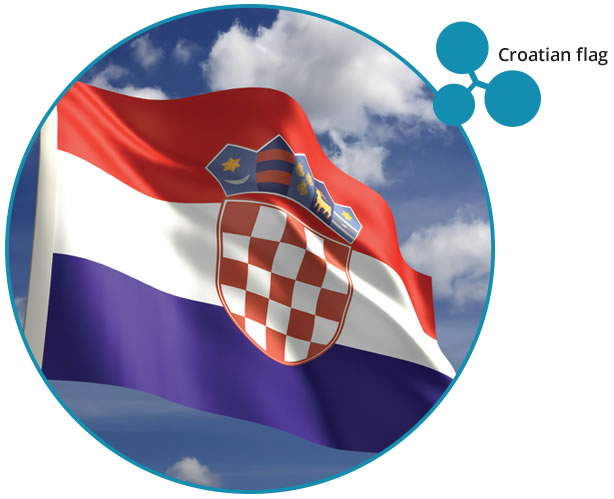
1.2. Geography & climate
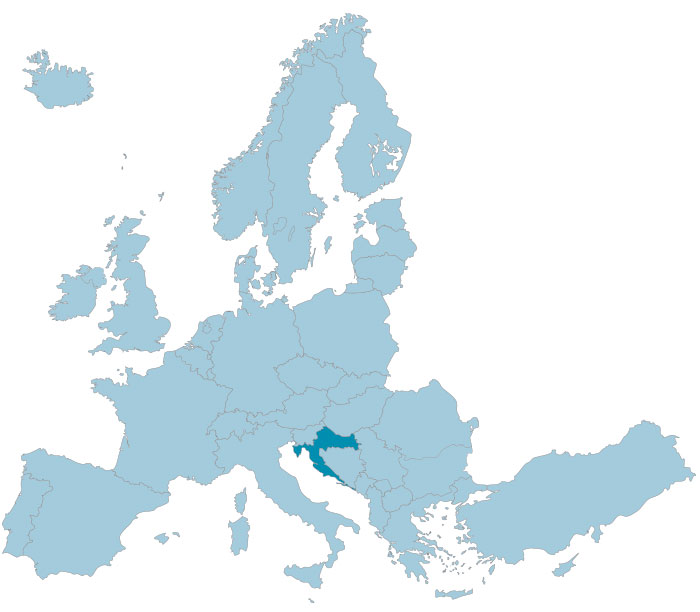
The local terrain is quite diverse given the size of the country. There are flat plains along the Hungarian border, low mountains in central Croatia and highlands near the Adriatic coastline and islands. Croatia can thus be divided into three main geographic regions, according to its landscape characteristics:
- lowland Croatia (Pannonian plains in the East) – mountains higher than 500 m are rare and of insular character;
- mountainous Croatia (separating the lowlands from the Adriatic) – less developed; its future development will be based on its transit importance, the growth of the already existing wood and timber industry, and the still underexploited potential for the production of healthy food, and winter and rural tourism; and
- coastal Croatia (alongside the Adriatic sea) – predominantly a karst area with very dry summers; the few streams mainly follow narrow gorges as they break their way through to the sea.
The Croatian coastal area may further be divided into the northern (Istria and Kvarner) and the southern part (Dalmatia). The highest point of Croatia is Dinara at 1 831 m, a mountain on the border with Bosnia and Herzegovina.
Croatia has eight national parks which have all been established to protect the flora and the fauna: Plitvice Lakes (Est. 1949), Paklenica (Est. 1949), Risnjak (Est. 1953), Mljet (Est. 1960), Kornati (Est. 1980), Brijuni (Est. 1983), Krka (Est. 1985), and Northern Velebit (Est. 1999).
Croatian national parks: www.parkovihrvatske.hr/parks
Croatia has the second highest average of sunshine hours in Europe (following Spain) and has three climate zones:
- The prevailing climate in the country’s interior is continental and moderately rainy;
- On the highest peaks, a mountain climate with snowfalls throughout winter;
- The areas along the Adriatic coast have a pleasantly mild Mediterranean climate with a large number of sunny days; summers are dry and hot, winters mild and wet with significant precipitations.
Meteorological and Hydrological Service (with forecasts): www.meteo.hr
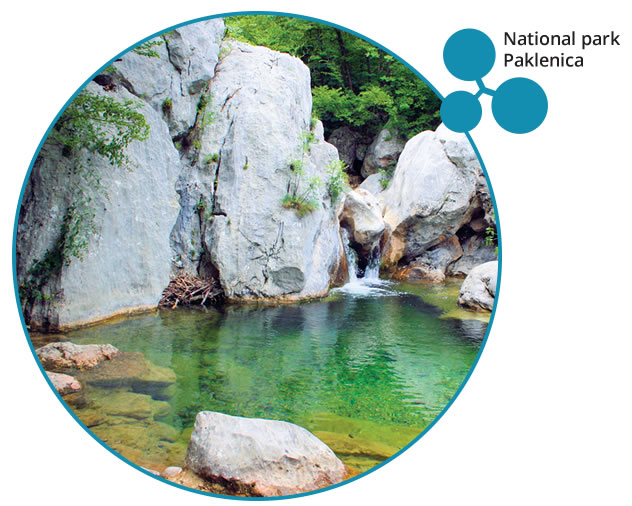
1.3. History
In recorded history, the area today known as Croatia was in early times inhabited by tribes of the Liburnians and the Illyrians. Since the 4th century BC it was also colonized by the Celts in the north, and along the coast by the Greeks, and later by the Romans. The Greeks founded the first towns and the Romans developed them further. There are still many Roman monuments left, such as the Arena (Amphitheater) in Pula. The Western Roman Empire established the provinces of Pannonia and Dalmatia, which were, after its downfall, passed to the Huns, the Ostrogoths and then to the Byzantine Empire.
Soon thereafter, during the 6th and 7th century, the Croats settled the east coast of the Adriatic Sea. During the 9th century, they received Christianity. Croatian duke Branimir was recognized as the Duke of Croatia by Pope John VIII. Later, Croatia became a kingdom and it peaked during the rule of Petar Krešimir IV (1058-1074) and king Zvonimir (1075-1089). Due to dynastic battles after Zvonimir's death, Croatia entered a personal union with the Kingdom of Hungary in 1102. Afterwards, since the Ottoman Empire was advancing on parts of the Hungarian-Croatian kingdom, they decided to seek protection and entered a personal union with the Austrian Habsburg Monarchy in 1527. In the 16th and 17th century, a great part of Croatia fell under the Ottoman Empire whose influence ebbed in the following centuries. In the meantime, Dalmatia on the eastern Adriatic coast belonged to the Republic of Venice from 1409 to 1797, when it became a part of the Habsburg Monarchy. There was a part of Croatia, however, that remained independent until Napoleon's army abolished it in 1808 – the Republic of Dubrovnik. It was famous for trade and a big naval trade fleet that sailed the Mediterranean Sea and even the Atlantic Ocean.
After the collapse of the Habsburg Austro-Hungarian Empire in 1918, Croatia entered the Kingdom of Serbs, Croats and Slovenes later renamed the Kingdom of Yugoslavia, which fell apart in 1941. After World War II, Croatia became a federal republic of the Socialist Federal Republic of Yugoslavia. Following the changes after the fall of communism, Croatia proclaimed independence from Yugoslavia in 1991 after holding its first democratic election. It was recognized as an independent state in 1992. After the Homeland War, Croatia returned to its internationally recognized borders in 1997. Achieving social and democratic stability, Croatia became a member of NATO in 2009.
Croatia is now a member state of the European Union. In 2004 the European Commission issued a recommendation for the beginning of accession negotiations with Croatia. It was given EU applicant status on 18 June 2004. The negotiations started in December 2005 and lasted for six years. Croatia signed the Treaty of Accession in December 2011 and was accepted as a full member on 1 July 2013.
1.4. National holidays & religion
Most major Catholic holidays are also public holidays in Croatia, owing to a largely Roman Catholic population. However, citizens of Croatia who celebrate different religious holidays have the right not to work on those dates. This includes Christians who celebrate Christmas on January 7 according to the Julian calendar, Muslims on the days of Ramadan Bayram and Kurban Bayram, and Jews on the days of Rosh Hashanah and Yom Kippur.
The Zagreb Tourist Board provides a list of religious communities in Zagreb. These can be contacted for information on community meetings elsewhere in Croatia.
More information can be found on the website of the Zagreb Tourist Board: http://www.infozagreb.hr/travel-plan/turist-information/useful-information/holidays-in-croatia
|
Public holidays |
|
|
1 January |
New Year |
|
6 January |
The Epiphany |
|
- |
Easter |
|
- |
Easter Monday |
|
1 May |
Labour Day |
|
- |
Corpus Christi (60 days post Easter) |
|
22 June |
Anti-Fascism Day |
|
25 June |
Statehood Day |
|
5 August |
Victory and Homeland Gratitude Day |
|
15 August |
Assumption |
|
8 October |
Independence Day |
|
1 November |
All Saints Day |
|
25 December |
Christmas Day |
|
26 December |
Boxing Day (St. Stephen's Day) |
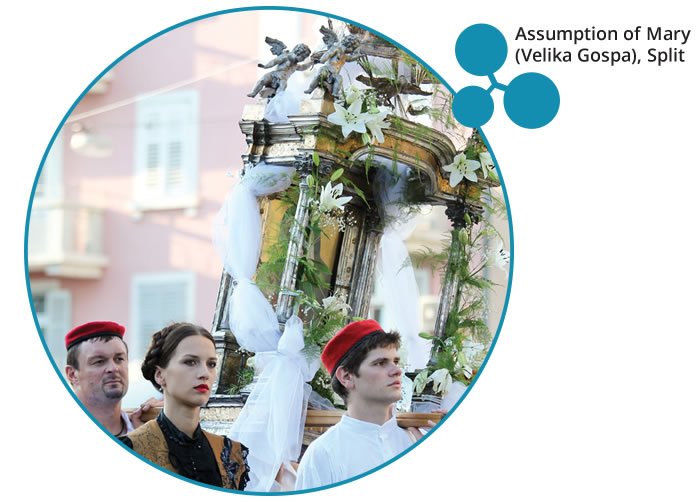
1.5. The educational system
The educational system in Croatia consists of the following:
- preschool education
- elementary education
- secondary education
- higher education.
Preschool education in Croatia encompasses education and care for children of preschool age, realized through educational, healthcare, nourishment and social care programmes for children from six months of age up to school age.
Eight-year elementary education in Croatia is compulsory and free for all children between the ages of six and fifteen. This refers to all children with permanent residence in Croatia, irrespective of their citizenship.
Following elementary education, secondary education enables everyone, under equal terms and according to one’s capabilities, to acquire the knowledge and skills required for work or the continuation of education. Within the secondary school system, depending on the type of curriculum, there are the following types of schools:
- Grammar schools (general or specialized) with a four-year curriculum; upon their completion, students can enter higher education.
- Vocational schools (technical, industrial, trade and other, as defined by the curriculum) with one- to five-year curriculum; upon their completion, students acquire secondary vocational education, or semi-skilled training in case of a one- or two-year curriculum.
- Art schools (music, dance, fine arts, and other, as defined by the curriculum) with at least a four-year curriculum; upon their completion, students can enter higher education.
Higher education is implemented through university and professional study programmes. University study programmes are implemented at universities while professional study programmes are implemented at polytechnics and schools of professional higher education. Polytechnic and school of professional higher education are institutions that organise and implement professional studies. A polytechnic implements at least three different studies in at least three fields. Professional study programmes can be implemented exceptionally at universities. The enrolment requirements for all levels of university and professional studies are determined by higher education institutions themselves. University study includes three levels: undergraduate, graduate and postgraduate studies. The professional study offers students an appropriate level of knowledge and skills enabling them to perform professional occupations and trains them for a direct entry into the labour market. The professional study includes two levels: professional study and specialist professional graduate study.
All about education in Croatia can be found on the website of the Ministry of Science and Education (MSE): https://mzo.hr/ >English>Education
Links to the websites of Croatian universities:
http://www.studyincroatia.hr >Studying in Croatia
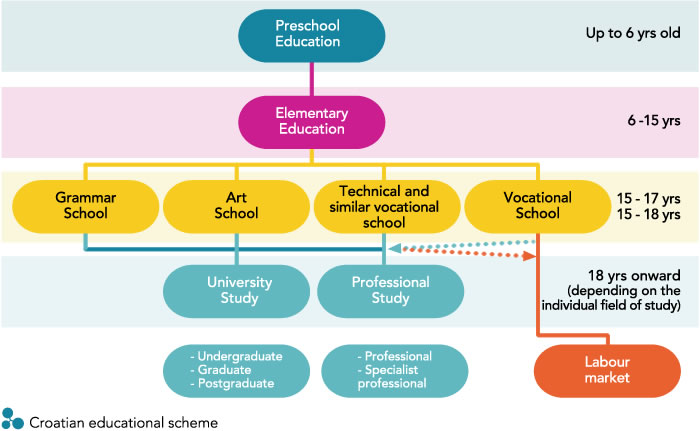
1.6. Research and innovation sector in Croatia
The integration of the Croatian research community in the ERA (European Research Area), fulfilment of the Lisbon goals, as well as the goals of the Europe 2020 strategy onto the Croatian Science&Technology policy agenda are highly prioritized within the Croatian research community and science policy. The Croatian research and innovation system has evolved over the last decade into a complex system of various institutions and measures directed to build innovation-driven growth.
The basic principles and guidelines of science and higher education policy are determined by the Croatian Parliament. The Ministry of Science and Education (MSE) is the main administrative body responsible for planning, funding and monitoring of the entire science and education system while the highest advisory body for the scientific research system is the National Council of Science, Higher Education and Technological Development with the aim to harmonize the overall development of the R&D and innovation system. The Ministry of Economy, Entrepreneurship and Crafts complements the national innovation policy related to innovation-based entrepreneurship and business infrastructure. The role of the Ministry of Regional Development and European Funds has increased upon the Croatian accession to the EU. The stakeholder in research and innovation system which do not provide funding is the Agency for Science and Higher Education with the task of setting up a national network for quality assurance in science and higher education sector.
Croatian science and technology sector employed 38,2 % of the active population (aged 25-64) in 2016 according to the Eurostat report which is close to the EU-28 average (46 %). The public R&D sector, with universities playing a leading role, is the largely dominant sector research manpower (56,5 % of total researchers HEI in 2016). As reported by Eurostat in 2016, the business sector employs a modest 21 % of total researchers and invests 0,44 of GDP in R&D. On the other hand, business enterprises sector is leading in R&D performing activities (49,4 %), followed by the higher education sector (31 %). Furthermore, the total investment into R&D was 0,85 % of the GDP in 2016 and has been fluctuating around 1 % in the past 10 years, marking Croatia as one of the most advanced R&D performers in the region, but not at the EU level. However, according to ERAWATCH, Economic Programme of Croatia envisaged increasing the investment in research and development to achieve a share of GERD of 1,4 % of the GDP by 2020 in order to overcome the gap in science funding between Croatia and the EU countries (0,85 % of GDP vs. 2,03 % of GDP in 2016).
R&D funding
The main funding bodies, in addition to the MSE, are the Croatian Science Foundation (CSF) funding different programmes and research projects and the Croatian Agency for SMEs, Innovations and Investments (HAMAG-BICRO) supporting various innovation policy programmes and creating, implementing and financing innovation policy programmes for the commercial application of science. Through the Regional Competitiveness Operational Programme and Operational Programme Human Resources Development, Croatia is combining European Regional Development Fund (ERDF) and European social fund (ESF) for funding development of science and research.
Useful links:
Ministry of Science and Education: www.mzo.hr >English
Agency for Science and Higher Education: www.azvo.hr >English
Croatian Academy of Sciences and Arts: http://info.hazu.hr/hr/
Croatian Science Foundation: www.hrzz.hr
Research performers in Croatia
Pursuant to the Act on Science and Higher Education, scientific activity is performed at the universities, public research institutes, research institutes, Croatian Academy of Sciences and Arts and other legal persons duly registered in the Register of Scientific Organisations. In Croatia, there are 8 public universities (72 faculties and art academies and 1 university centre), 2 private universities, 25 public research institutes, 4 public polytechnics, 2 public colleges, and 2 private colleges.
List of R&D organisations in Croatia: http://pregledi.mzos.hr/Ustanove_Z.aspx (in Croatian)
Postgraduate (doctoral) university study programmes
According to the database of the Agency for Science and Higher Education, there are currently 126 doctoral study programmes registered in Croatia in the fields of Arts, Biomedicine and Health, Biotechnical sciences, Humanities, Natural sciences, Social sciences, Technical sciences and in interdisciplinary fields. Postgraduate doctoral studies normally last three years. Upon completion, students are awarded an academic title of Doctor of Science or Doctor of Arts. It is important to highlight that, at the moment, only several graduate university doctoral study programmes are being fully delivered in English.
List of programmes in foreign languages can be found on the STUDYINCROATIA website: www.studyincroatia.hr (institutions and programmes – teaching language)
Detailed list of doctoral studies is available on the STUDYINCROATIA website: www.studyincroatia.hr (institutions and programmes)
1.7. Charter & Code in Croatia
The European Charter for Researchers and the Code of Conduct for the Recruitment of Researchers were adopted by the European Commission as a Recommendation to the Member States. The 'Charter & Code' address researchers as well as employers and funders in both public and private sectors. The Charter provides a framework for the career management of researchers, while the Code promotes open and transparent recruitment and appraisal procedures. Together they are aimed at developing an attractive, open and sustainable European labour market for researchers.
Human Resources Strategy for Researchers
To facilitate the implementation of the Charter & Code, guidance is provided by the "Human Resources Strategy for Researchers incorporating the Charter & Code". This mechanism is put into action on a voluntary basis, and is as simple as possible, avoiding cumbersome procedures and respecting the variety of situations across institutions. The “HR Excellence in Research” logo is awarded to research institutions and funding organizations that have been acknowledged by the European Commission for having made significant progress in implementing the Charter & Code.
Five reasons to choose an employer or funder who has earned the right to use the “HR EXCELLENCE IN RESEARCH” logo:
- Your rights as a professional are recognized and enhanced
- Your mobility experience is valued
- Your work-life balance is respected
- Your recruitment will follow a transparent process
- You join a truly pan-European network consisting of research organizations and researchers.
Croatian research organizations with the “HR EXCELLENCE IN RESEARCH“ acknowledgement:
University of Rijeka: www.uniri.hr
University of Zadar: www.unizd.hr
University of Dubrovnik: www.unidu.hr
Institute for Migration and Ethnic Studies: www.imin.hr
Institute for Medical Research and Occupational Health: www.imi.hr
Institute of Economics, Zagreb: www.eizg.hr
Institute for Anthropological Research: www.inantro.hr
Institute for Social Research: www.idi.hr
Institute of Public Finance: www.ijf.hr
Josip Juraj Strossmayer University of Osijek: www.unios.hr
Institute of Physics: www.ifs.hr
University of Split: www.unist.hr
University of Zagreb: www.unizg.hr
Institute of Social Sciences Ivo Pilar: www.pilar.hr/

Before entering Croatia
Introduction
Before entering Croatia as a foreign researcher you should check several things. First, are you an EEA citizen of a country with no mutual restrictions on employment with Croatia (Chapter 2.2.)? Or a citizen of an EEA country with mutual restrictions with Croatia still in place (Chapter 2.2.)? Or maybe a citizen of a third country (country outside the EEA) for which Croatia does not require a visa (Chapter 3.1.1.)?
Then, you should know how long you will stay in Croatia and for which purpose.
|
Checklist before arrival |
|
|
Am I an EEA citizen? |
|
|
Do I need a visa? |
page 31 |
|
Am I staying for less than 90 days? |
page 35 |
|
If I am staying for more than 3 months, what is the purpose of my stay? |
page 37 |
|
Do I need to proceed with the recognition of my qualifications? |
page 83 |
|
Do I need travel health insurance? |
page 71 |
|
Does my country have an agreement on social security with Croatia? |
|
|
How can I bring my family to Croatia? |
page 48, 57 |
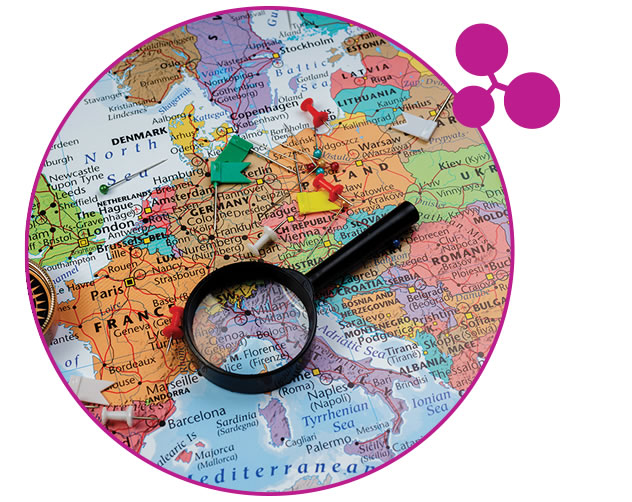
2.1. Third-country nationals
Third-country nationals may stay in Croatia (with or without a visa) for a maximum of 90 days within any period of 180 days (short-term stay).
For more than 90 days a temporary stay permit (privremeni boravak) should be requested by third-country nationals and may be granted on the following grounds:
- work
- research
- secondary school education and university-level studies
- family reunification
- same-sex life partnership
- humanitarian grounds
- work of seconded (posted) worker.
Temporary stay can be granted to third-country researchers who meet the following conditions:
- There is a justified purpose of temporary stay (work, research, studies, etc.)
- They have a valid travel document
- They have a means of supporting themselves
- They have a valid health insurance – see Chapter 4.3.
- There are no legal obstacles to granting entry to Croatia
- They do not pose a threat to public order, national safety or public health.
A temporary stay for the purpose of employment is issued as a stay and work permit (dozvola za boravak i rad) to third-country nationals. For more information please see Chapter 3.1.2, Option 2.
Third-country researchers who have been granted a temporary stay for the purpose of research (privremeni boravak u svrhu istraživanja) may work without a stay and work permit. For more information please see Chapter 3.1.2., Option 3.
Third-country nationals intending to study in Croatia must also regulate their temporary stay for the purpose of studies (privremeni boravak u svrhu studiranja). International students are not allowed to attend classes at a university until they have procured a temporary stay permit. For more information please see Chapter 3.1.2., Option 4.
A temporary stay for the purpose of family reunification (privremeni boravak u svrhu spajanja obitelji) may be granted to a third-country national who is a member of the nuclear family of a foreigner who has already been granted a temporary stay permit. For more information please see Chapter 3.1.2. Option 5.
Foreigners are not allowed to start working prior to having been granted an appropriate permit!
Practical advice: Before arrival to Croatia kindly ask for support from your host institution or from a member of the EURAXESS network in Croatia to provide personal assistance in all the administrative procedures. In case of obstacles such as language barrier, it is recommended to have a person fluent in Croatian to accompany you when visiting public administration institutions.
Contacts of the EURAXESS network members in Croatia: www.euraxess.hr
2.2. Nationals of the European Economic Area
The European Economic Area (EEA) includes 28 Member States of the European Union and 3 countries as non-Member States of the European Union - Iceland, Liechtenstein, and Norway. However, the same provisions on immigration valid for EEA nationals apply to the nationals of the Swiss Confederation as well.
Researchers from the EEA countries with no mutual restrictions with Croatia who plan to work for shorter than 3 months do not need any kind of permit for this period. If they plan to stay/work for longer than 3 months (temporary stay) they need to register their stay in Croatia. However, researchers from Austria with which Croatia still has mutual employment restrictions (in place until 30 June 2020) need to undergo the same procedure of approval as third-country researchers.
A temporary stay for the purpose of employment is issued as a certificate of temporary stay registration for the purpose of work (potvrda o prijavi privremenog boravka državljanina države članice EGP-a u svrhu rada) to researchers who are EEA nationals. For more information please see Chapter 3.2., Option 1.
EEA nationals intending to study in Croatia must also submit a request for a certificate of temporary stay registration for the purpose of studies (potvrda o prijavi privremenog boravka državljanina države članice EGP-a u svrhu studiranja ili strukovne izobrazbe). For more information please see Chapter 3.2., Option 2.
Certificate of temporary stay registration of a family member who is an EEA national (potvrda o prijavi privremenog boravka člana obitelji koji je državljanin države članice EGP-a) may be granted to an EEA national who is a member of the nuclear family of an EEA national who has already been granted a certificate of temporary stay registration. This is also possible for family members of an EEA national who are third-country nationals (privremeni boravak za člana obitelji koji nije državljanin države članice EGP-a) under somewhat simplified conditions. For more information please see Chapter 3.2., Option 3.
Foreigners are not allowed to start working prior to having been granted an appropriate permit!
Practical advice: Before arrival to Croatia kindly ask for support from your host institution or from a member of the EURAXESS network in Croatia to provide personal assistance in all the administrative procedures. In case of obstacles such as language barrier, it is recommended to have a person fluent in Croatian to accompany you when visiting public administration institutions.
Contacts of the EURAXESS network members in Croatia: www.euraxess.hr
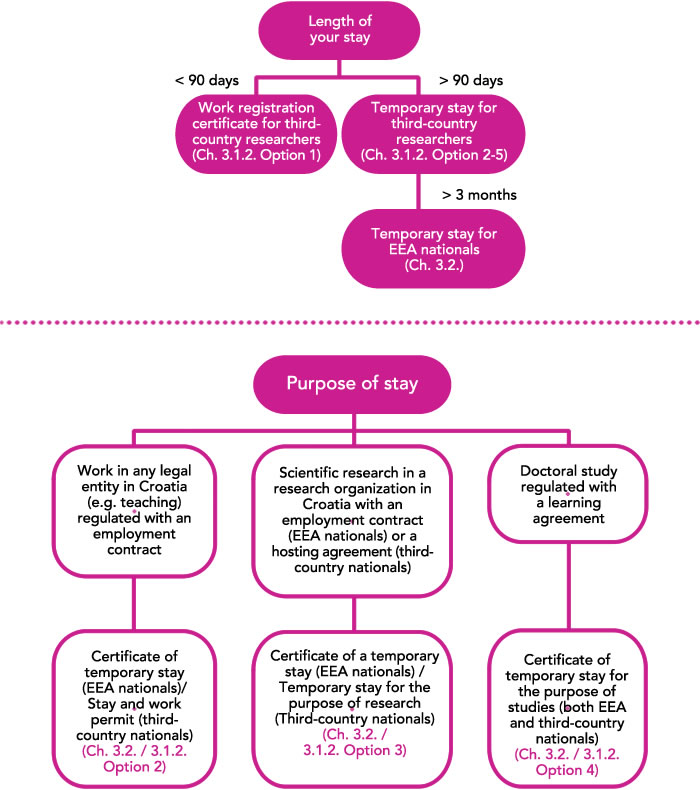
2.3. Validity of home country’s social security (health insurance and pension insurance)
If seconded to Croatia for a period of more than 90 days, third-country nationals are advised to check whether there exists an agreement on social security between Croatia and their country of origin before coming to Croatia and obtaining a temporary stay permit. Please visit the following link for more information: www.mirovinsko.hr.
Croatia co-ordinates the social security system with 8 non-EU countries in total through international agreements on social security: Australia, Montenegro, Bosnia and Herzegovina, Canada, Canadian Province of Quebec, Macedonia, Serbia, and Turkey, but not all of the agreements on social security with mentioned countries regulate the entitlement to healthcare services. In case they do, you may present proof of your home country health insurance and it will be recognized by the Croatian Health Insurance Fund.
From 1 July 2013 (the date of the Croatian accession to the European Union) former bilateral agreements with the EU Member States were replaced by EU regulations on the coordination of social security systems. These regulations are in place between all 28 Member States of the EU. Also, Norway, Iceland, and Liechtenstein as Member States of the European Economic Area (EEA) apply EU regulations for coordination of social security systems with Croatia starting from 12 April 2014, whereas Switzerland applies them since 1 January 2017.
Health insurance
In case a bilateral agreement on social security exists, the country of origin’s local health insurance authority must issue a document as a basis for the third-country national to be entitled to medical protection while in Croatia.
Proof of health insurance is considered to be:
- a European Health Insurance Card (EHIC), accepted by the Croatian Health Insurance Fund
- a patient’s certificate issued by the Croatian Health Insurance Fund
- a regular certificate of a foreign health insurance agency or
- any other proof provided under the agreement on social insurance.
If third-country nationals have been issued a certificate of a foreign health insurance agency or any other proof provided under the agreement on social insurance with a validity period shorter than the planned duration of their stay, upon the expiration of validity of the certificate in question, they are obliged to present a new one or contact the competent office of the Croatian Health Insurance Fund (Hrvatski zavod za zdravstveno osiguranje – HZZO), in order to establish their rights to health insurance for the remaining time of their stay.
If third-country nationals cannot obtain any of the above-mentioned proof when applying for the first temporary stay permit or they are nationals of countries with which Croatia has not concluded an agreement on social insurance or the agreement does not regulate healthcare, they are obliged to submit a travel insurance certificate. Upon their arrival to Croatia and upon having been granted a temporary stay permit, they are obliged to procure a health insurance policy from the Croatian Health Insurance Fund as described in Chapter 4.3.
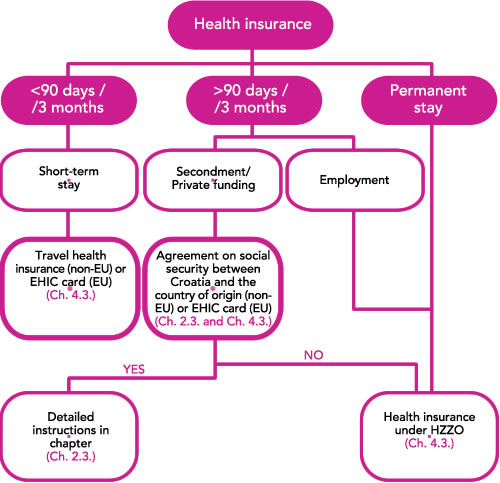
EEA nationals (except nationals of Iceland, Lichtenstein, Norway, and Switzerland) need to present their European Health Insurance Card (EHIC) as described in Chapter 4.3. The European Health Insurance Card is issued free of charge and allows anyone who is insured by or covered by a social security scheme of the EU to receive medical treatment in another Member State for free or at a reduced cost, if that treatment becomes necessary during their visit. EHIC can be used in all EU countries with all contracting healthcare providers. It will cover you for treatment that is needed to allow you to continue your stay until your planned return. It also covers you for treatment of pre-existing medical conditions and for routine maternity care (as long as you did not go abroad to give birth). EHIC is not a travel insurance and does not cover the expenses of healthcare services at private healthcare providers. It does not cover travel costs of the return to your home country, after the occurrence of the insured event, nor any costs of planned medical treatments.
Pension insurance
If there is an agreement on social security between Croatia and a non-EEA country, in order to establish the right to a pension when retiring, the time spent in another country and contributions paid to the so-called first pillar are aggregated for the benefit of the mobile researcher who is a national of a third country. A third-country researcher will keep the (first pillar) pension rights during his/her mobility period in Croatia, i.e. the period during which they worked in Croatia, if not otherwise stipulated by the agreement on social security between Croatia and their home country. For more information, please see Chapter 4.4.
In the case of EEA nationals, the pension insurance (first pillar) is regulated with EU regulations on the coordination of social security systems. As mentioned, these regulations are in place between all 28 Member States of the EU, but also Norway, Iceland, Liechtenstein, and Switzerland.
Researchers face many difficulties in preserving their supplementary pension benefits when moving between different countries (e.g. second pillar pension contributions). This affects greatly their standard of living upon retirement. To overcome this problem, the European Commission is supporting a consortium of employers, through the Horizon 2020 programme, in creating a single European pension fund - RESAVER. More information on this unique European pension scheme for researchers is available here: www.resaver.eu/
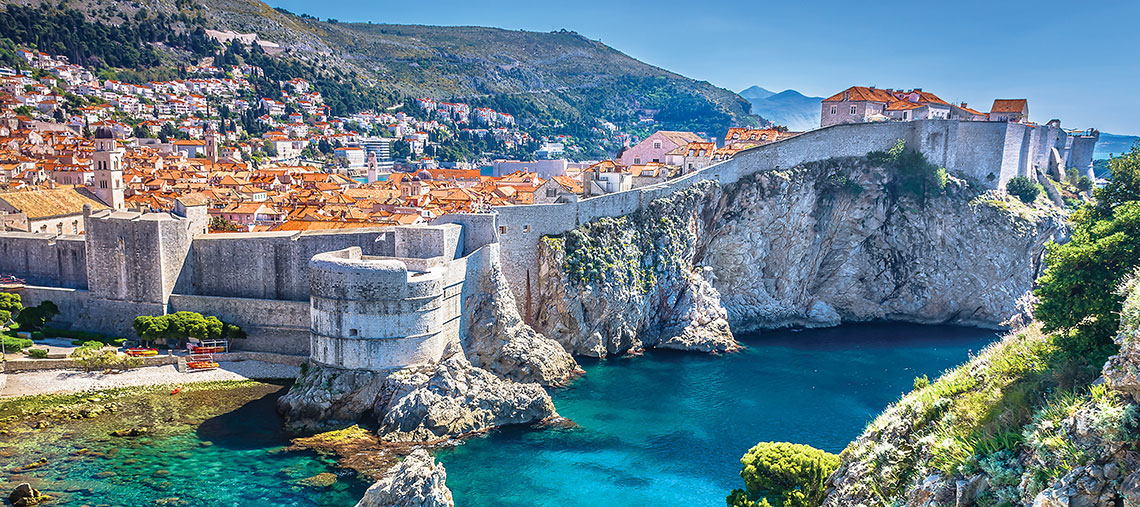
Regulating your stay in Croatia
3.1. Third-country nationals
3.1.1. Visas
WHY?
1. Transit through the territory of the Republic of Croatia or stay at the territory of the Republic of Croatia for the maximum duration of 3 months in any six-month period from the date of initial entry to the territory of the Republic of Croatia.
2. Transit through the international transit area of an airport.
3. For the purpose of stay in the Republic of Croatia for up to 30 days (long-term visa), if you are granted a temporary stay for family reunification, secondary education, study, research, humanitarian reason, life partnership, work, work posted worker, stay of a person with long-term stay in another EEA Member State, for other purposes or stay of digital nomads, i.e., if you are being issued a stay and work permit and if you need a short-term visa to enter the Republic of Croatia
Visas are issued by diplomatic missions or consular offices of the Republic of Croatia. A visa cannot be used as a work permit.
Knowing whether you need a visa is also important since it determines whether you can apply for temporary stay permits in Croatia or whether you need to do this through Croatian diplomatic missions or consular offices.
WHO?
Nationals of the following states do not require a visa for entering the Republic of Croatia and for a stay of up to 3 months or for passing through the territory of the Republic of Croatia:
Republic of Albania, Principality of Andorra, Antigua and Barbuda, Argentine Republic, Australia, Republic of Austria, Commonwealth of the Bahamas, Barbados, Kingdom of Belgium, Bosnia and Herzegovina, Federative Republic of Brazil, Brunei Darussalam, Republic of Bulgaria, Canada, Republic of Chile, Republic of Costa Rica, Republic of Cyprus, Czech Republic, Kingdom of Denmark, Republic of Estonia, Republic of Finland, French Republic, Federal Republic of Germany, Republic of Guatemala, Hellenic Republic, Holy See, Republic of Honduras, Hungary, Republic of Iceland, Ireland, State of Israel, Italian Republic, Japan, Republic of Korea, Republic of Latvia, Principality of Liechtenstein, Republic of Lithuania, Grand Duchy of Luxemburg, Republic of Macedonia, Malaysia, Republic of Malta, Republic of Mauritius, United Mexican States, Principality of Monaco, Montenegro, Republic of Nicaragua, Kingdom of the Netherlands, New Zealand, Kingdom of Norway, Republic of Panama, Republic of Paraguay, Republic of Poland, Portuguese Republic, Romania, Republic of El Salvador, Saint Christopher and Nevis, Republic of San Marino, Republic of Singapore, Republic of Seychelles, Republic of Serbia, Slovak Republic, Republic of Slovenia, Kingdom of Spain, Kingdom of Sweden, Swiss Confederation, Republic of Turkey, United Kingdom of Great Britain and Northern Ireland, Eastern Republic of Uruguay, United States of America, Bolivarian Republic of Venezuela, People's Democratic Republic of Algeria, Hashemite Kingdom of Jordan, Republic of Armenia, Plurinational State of Bolivia, People’s Republic of China, Republic of Colombia, Republic of Cuba, Georgia, Republic of India, Republic of Indonesia, Islamic Republic of Iran, Republic of Kazakhstan, Republic of Kosovo, Republic of Moldova, Sultanate of Oman, Republic of the Philippines, Republic of Peru, State of Qatar, Russian Federation, Republic of South Africa, Kingdom of Thailand, Republic of Tunis, United Arab Emirates, Ukraine, Socialist Republic of Vietnam, Arab Republic of Egypt, Kingdom of Morocco, Republic of Turkey.
The exemption from the visa requirement also applies to the following holders of valid travel documents of the United Kingdom of Great Britain and Northern Ireland:
- British Nationals (Overseas);
- British Overseas Territories Citizens who have the right of abode in the United Kingdom, and
- British Subjects who have the right of abode in the United Kingdom.
The exemption from the visa requirement also applies to the holders of valid travel documents issued in the Hong Kong Special Administrative Region of the People’s Republic of China and in the Macao Special Administrative Region of the People’s Republic of China.
The exemption from the visa requirement also applies to holders of passports issued in the territory of Taiwan, if the passport includes an identity card number.
Nationals of the following countries may enter Croatia with a valid identity card or a document confirming their identity and nationality:
European Economic Area (EEA), Principality of Andorra, Holy See, Principality of Monaco, Republic of San Marino and Swiss Confederation. Nationals of Bosnia and Herzegovina can enter Croatia, without a visa, only on the basis of a biometric passport. All other nationals require a visa for entering Croatia and for a stay of up to 3 months or for passing through the territory of Croatia unless stipulated otherwise by international agreements. The Government of the Republic of Croatia may introduce a provisional suspension of the visa regime for a certain period, for nationals of some countries. For example, all foreigners who are holders of valid Schengen documents, as well as national visas and residence permits of Bulgaria, Cyprus, and Romania do not require an additional visa for Croatia.
For more information and possible temporary exceptions please check the visa requirements overview on the website of the Ministry of Foreign and European Affairs (MFA): http://www.mvep.hr/en/consular-information/visas/visa-requirements-overview/ (in English).
For a long-term visa, a third-country national must obtain one before arriving in the Republic of Croatia, which is thus valid for one or more entries into the Republic of Croatia. However, its validity period must not exceed six months. In addition, the start of the validity of a long-term visa cannot be earlier than the start of the validity period of the approved temporary stay or the issued stay and work permit in the Republic of Croatia.
HOW?
As a general rule, a foreigner must lodge a visa application personally. A visa application for a foreign minor or a foreigner deprived of their legal capacity shall be submitted by their legal representative.
Documents needed to apply for a visa:
- visa application form*,
http://www.mvep.hr/en/consular-information/visas/forms/visa-application/
- original and a copy of a valid travel document (the period of validity of the travel document should exceed that of the visa’s by three months, must include at least two empty pages, and must be issued in the last 10 years)
- colour photograph 35x45 mm
- supporting documents that prove:
a) purpose of the visit to Croatia
b) means of support to cover the stay in Croatia **
c) means of transport and intention to return to the country of origin or to a third country
d) ensured accommodation
e) travel health insurance (see Chapter 3.8.) - evidence of paid visa fee.
! * Application form is available in several languages and can also be filled in online and printed out for submission. It must be filled in the official language of the applicant’s country or in English; in Latin alphabet, clearly and in block letters.
! ** Means of support can be proven with:
- appropriate certificate on the regular income of the applicant or the person responsible for allowance
- certified statement of a third legal or natural person-sponsor who agrees to take over the costs of maintenance, with a proper proof of solvency
- letter of guarantee, with appropriate proof of solvency
- cash in local or foreign convertible currency, non-cash payment funds (travellers’ checks, credit cards, etc.), provided that it is not a short-term payment of higher amounts with the aim of misrepresenting the actual financial situation (credibility).
For a long-term visa, the third-country national personally applies for one on the prescribed form, in order to attain biometric data. The said request should be submitted to the diplomatic mission or consular office of the Republic of Croatia no earlier than two months prior and no later than two months after the beginning of the validity of the temporary stay or issued stay and work permit in the Republic of Croatia.
Upon approval of the temporary stay or issuance of a stay and work permit, the competent police administration or police station shall submit a notification to the diplomatic mission or consular office, where the third-country national will apply for a long-term visa.
A third-country national who has been issued a long-term visa is obliged to contact the competent police administration or police station within 30 days of the start of the visa validity for the purpose of registering residence and obtaining a biometric residence card.
Please note: A foreign national submitting an application for a visa to a diplomatic mission or a consular office of the Republic of Croatia is obliged to prove that they have sufficient financial means to cover their subsistence during their stay in Croatia and the return to the country of origin or transit to a third country. When a foreign national enters Croatia, the body in charge of state border crossing control is authorised to request of them to present financial means necessary to cover their subsistence during his or her stay in Croatia and return to the country of origin or transit to a third country. The amount of financial means is fixed at the equivalent of EUR 70 per day of the estimated stay in Croatia. If a foreign national is in possession of a certified letter of guarantee by a natural or legal person from Croatia, proof of a tourist booking or a similar document, they are obliged to present proof that they possess the amount equivalent to EUR 30 per day of the estimated stay in Croatia.
WHERE?
At a Croatian diplomatic mission or consular office. If there is no Croatian diplomatic mission or consular office in the applicant's country, visa application may be submitted to the nearest Croatian diplomatic mission or consular office. Visa applications can also be personally submitted at VFS Visa Application Centres in Algeria, Armenia, Azerbaijan, Belarus, China, Egypt, Philippines, India, Indonesia, Jordan, Kazakhstan, Lebanon, Qatar, Kuwait, Kosovo, Morocco, Mongolia, Nigeria, South Africa, Oman, Russia, Saudi Arabia, Thailand, Turkey, United Arab Emirates, Ukraine, and Vietnam.
Croatian diplomatic missions and consular offices: http://www.mvep.hr/en/diplomatic-directory/diplomatic-missions-and-consular-offices-of-croatia.
VFS Visa Application Centres: http://www.mvep.hr/en/consular-information/visas/visa-requirements-overview/.
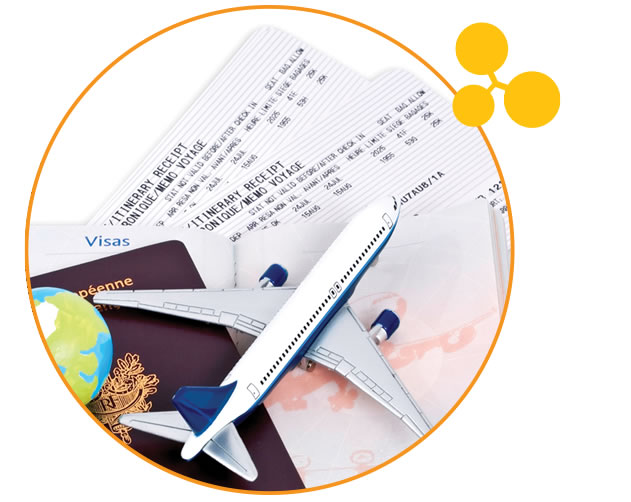
HOW MUCH?
Airport-transit visa (A), Short-term visa (C) – EUR 60.
Urgent visa issuance (when the application has been submitted three or fewer days prior to the intended journey without justification) – EUR 70.
Following categories of persons are exempted from visa application fees:
- family members of a Croatian citizen (spouse and children)
- family members of citizens of EEA Member States
- children up to the age of 12
- holders of diplomatic and service passports travelling in their official capacity
- pupils, students, postgraduate students and teachers accompanying them when they come to attend school, study, and professional training
- researchers coming to conduct research
- representatives of non-profit organizations up to the age of 25, who are to attend seminars, conferences, sport, cultural or educational events organized by non-profit organizations.
WHEN?
Third-country nationals who are subject to the visa requirement are obliged to apply for a visa prior to their entry into Croatia.
A visa application must be lodged at the earliest three months prior to the date of the intended entry into Croatia and may be issued within a period of up to 15 days.
A long-term visa may be issued if the third-country national:
- has a temporary stay permit, i.e., a stay and work permit issued in the Republic of Croatia
- has an adequate travel health insurance
- is not banned from entering the Republic of Croatia and staying in the Republic of Croatia or if a warning has not been issued in the SIS for the purpose of banning
- does not pose a danger to public order, national security or public health
An application for a long-term visa is permitted if:
- it was filed within the deadline
- it is submitted on the prescribed form
- a travel document is presented along with it
- a photo is attached
- a third-country national has been granted a temporary stay permit or a stay and work permit issued in the Republic of Croatia
- the prescribed administrative fee has been paid
- the biometric data were collected.
TIPS
Third-country nationals who are subject to the visa requirement and intend to stay in Croatia for more than 90 days have to submit the necessary documents for both visa and temporary stay at a Croatian diplomatic mission or consular office. However, third-country researchers may submit a temporary stay application at a police directorate or police station in Croatia (upon having been granted a visa). Third-country nationals who are subject to the visa requirement and intend to work less than 90 days, have to apply for a visa at a Croatian diplomatic mission or consular office and submit a request for approval on work registration upon arrival at a police directorate or police station.
All original documents must be officially translated into Croatian, and an “apostille” of all original documents and certified translations may be required. It is suggested to check with the Croatian diplomatic mission or consular office whether the need for an “apostille“ exists.
3.1.2. Stay/work permits in Croatia
Option 1: Work registration certificate (Potvrda o prijavi rada)
WHY?
If you plan to work in Croatia up to 90 days.
WHO?
Based on a work registration certificate, the following categories of researchers and some other categories of workers and volunteers may work up to 90 days a year:
- scientists on scientific and professional training, scientists-representatives of international organisations and scientists who will participate in the implementation of scientific projects important for Croatia;
- administrative staff, experts, teachers, and lecturers at foreign cultural, educational and scientific institutions performing services in Croatia as part of a cultural and educational cooperation programme;
- administrative staff, experts, teachers, and lecturers at foreign cultural, educational and scientific institutions having branch offices in Croatia, provided that they come from their home institutions;
- third-country nationals at a traineeship or volunteering in the framework of EU Programmes, Erasmus+ programme, other international programmes as well as other programmes and initiatives managed by Croatian institutions in charge of education, science and/or volunteering.
HOW?
In order to obtain the work registration certificate, a third-country national or host institution (employer), needs to submit a request to the police directorate or police station, according to the place of business or registered seat of the employer.
The following documents are needed:
- a written request for the issuance of work registration certificate
- a contract, hosting agreement or other appropriate document proving the status of one of the above mentioned categories of foreigners
- original and a copy of a valid travel document
- registration papers of the host institution.
If third-country nationals are subject to the visa requirement, they should apply for a visa at a Croatian diplomatic mission or consular office, prior to their entry into the Republic of Croatia (see Chapter 3.1.1.). They cannot start working prior to having obtained the work registration certificate from the local police directorate or station, according to the place of business or registered seat of the employer.
Please note that the aforementioned categories of foreigners who plan to stay and work longer than 90 days are obliged to regulate their temporary stay for the purpose of work or for the purpose of research. For more information please refer to Option 2 and Option 3, respectively.
WHERE?
At the police directorate or police station, according to the place of business or registered seat of the employer. The organisation of police administration in Croatia is available at the website of the Ministry of Interior of the Republic of Croatia: https://mup.gov.hr/kontakti-281975/281975.
HOW MUCH?
The administrative fee upon a request for the issuance of work registration certificate is HRK 105 (approximately EUR 15). The fee needs to be paid to the IBAN of the State Budget upon collection of the certificate.
WHEN?
Upon arrival, before the start of the work. It usually takes about 1 - 2 days to issue this permit.
TIPS
The period of 90 days includes both working and non-working days (Saturdays, Sundays, public holidays).
If you need a visa for entering Croatia, then you need to first apply for a visa at a Croatian diplomatic mission or consular office, and submit the request for work registration certificate upon arrival (see Chapter 2.4.).
No power-of-attorney (punomoć) is needed for the issuance of a work registration certificate when the request is submitted by the employer.
Option 2: Temporary stay for the purpose of employment / Stay and work permit (Dozvola za boravak i rad)
WHY?
In case you plan to work in Croatia longer than 90 days based on an employment contract.
In case you plan to work on a publicly funded research position in one of Croatian research organizations.
WHO?
Third-country researchers getting employed for a longer period in an open position (not on a specific research project), i.e., who are employed at scientific, scientific - teaching or other research positions available at research organizations; teachers - native speakers of foreign languages, foreign language assistants (lectors, editors) and other teachers who teach at Croatian universities or registered foreign language schools.
The employer can also submit the request for issuing a stay and work permit for third-country nationals. In general, before applying for a stay and work permit the employer is obliged to request the implementation of a labour market test at the regional office or office of the Croatian Employment Service. The following categories of third-country nationals, among others, are exempted from this procedure:
- a highly qualified third-country national who qualifies for an EU Blue Card
- scientific researchers who are employed in scientific, scientific-teaching or other research positions at the Croatian research organizations
- professors - native speakers of foreign languages, lecturers and other teachers who teach at Croatian universities and other educational institutions or registered international schools and foreign language schools
- a third-country national who came for professional practice, training or volunteering under the Union Program, the Erasmus + Education, Training, Youth and Sports Program and its successors, the European Solidarity Corps Program and other international programs and other programs and initiatives implemented by ministries responsible for education, science and volunteering, who does not have to provide proof that the host entity has a third-party liability insurance policy
- administrative staff, experts, teachers and lecturers of foreign cultural, educational and scientific institutions who perform activities in the Republic of Croatia within the programme of cultural and educational cooperation, as well as administrative staff, experts, teachers and lecturers of foreign cultural, educational and scientific institutions in the Republic of Croatia.
Please note: Third-country nationals do not need a stay and work permit in order to legally work in Croatia if they have been granted:
- temporary stay for the purpose of family reunification with a Croatian national, a third-country national on a long-term stay, permanent stay, an asylee or, a foreigner who has been granted subsidiary or temporary protection
- temporary stay for the purpose of a life partnership with a Croatian national, a third-country national on a long-term stay, permanent stay, an asylee or, a foreigner who has been granted subsidiary or temporary protection
- temporary stay for the purpose of family reunification or life partnership with a third-country national who has been issued an "EU Blue Card" or a stay and work permit for intra-corporate relocation
- temporary stay for the purpose of family reunification or life partnership with a third-country national holding a long-term stay permit in another EEA Member State
- a temporary stay on humanitarian grounds
- autonomous stay
- temporary stay as a posted worker
- a temporary stay for the purpose of research – see Option 3 below
- a temporary stay for the purpose of family reunification or life partnership with the researcher granted a temporary stay for the purpose of research.
- temporary stay for the purpose of studying, if the student works or is self-employed for a maximum of 20 hours per week, except when student internship is an integral part of the study program
- the status of a full-time pupil when working work through authorized intermediaries, without employment for a maximum of 20 hours per week
- temporary stay for the purpose of the stay of a long-term resident in another EEA Member State
- asylum or subsidiary protection or is an applicant for international protection
- permanent stay
- long-term stay.

HOW?
A request for granting a stay and work permit for a third-country national, who does not need a visa to enter Croatia, can be submitted by the employer or by the foreigner himself to the competent police directorate or police station according to the place of residence, the registered seat of the employer or working place. In case third-country nationals need a visa, they must submit a request at a Croatian diplomatic mission or a consular office.
Exceptionally, also full-time students (bachelor, master or doctoral level) and research with a hosting agreement, who are third country nationals and need a visa to enter and stay in Croatia, can submit the request for a stay and work permit to a police directorate or police station in Croatia after obtaining a visa and coming in Croatia! This is also possible for members of their families. Of course, they can also submit both requests (for visa and stay permit) at the same time at a Croatian diplomatic or consular office before coming to Croatia.
Documents needed to apply for a stay and work permit are:
- application form 9a
(mup.gov.hr/UserDocsImages/Dokumenti/stranci/2013/obrazac_9a.pdf)
- one colour photograph (35x45 mm)
- proof of means of support*
- proof of health insurance**
- original and copy of a valid travel document
- employment contract or written proof of signed employment contract, or another appropriate contract
- evidence of the foreigner’s professional qualifications and skills
- proof of registration of a company, branch office, representative office, craft, association or institution in Croatia.
! *Proof of means of support: The minimum amount of funds that a foreigner needs to have on a monthly basis for his/her own needs is 2,000.00 HRK. For a two-member family the minimum amount is 2,750.00 HRK, for a three-member family 3,250.00 HRK, and for every additional family member the amount is increased by additional 500.00 HRK. Proof of means of support can be an employment contract which shows the amount of future salary, or a confirmation from the employer about the salary which the foreigner will receive (in case of an application for first-time temporary stay for the purpose of employment).
! **Proof of health insurance: In case a bilateral agreement on social security exists, the country of origin’s local health insurance authority must issue a document on the basis of which third-country national will be entitled to medical protection while in Croatia.
For citizens of countries with which Croatia has an agreement on social insurance in place, the proof of health insurance is considered to be:
- a European Health Insurance Card, accepted by the Croatian Health Insurance Fund
- a patient’s certificate issued by the Croatian Health Insurance Fund
- a regular certificate of a foreign health insurance agency or
- any other proof provided under the agreement on social insurance.
If third-country citizens have been issued a certificate of a foreign health insurance agency or any other proof provided under the agreement on social insurance with a validity period shorter than the planned duration of their stay, upon the expiration of validity of said certificate, they are obliged to present a new one or contact the competent office of the Croatian Health Insurance Fund (HZZO - Hrvatski zavod za zdravstveno osiguranje: https://hzzo.hr/en), in order to establish their rights to health insurance for the remaining time of their valid stay. If third-country citizens cannot obtain any of the above mentioned proof when applying for the first temporary stay permit or they are citizens of countries with which Croatia has not concluded an agreement on social insurance or the agreement does not regulate health care, they are obliged to submit a travel insurance certificate. Moreover, upon their arrival in the Croatia and upon having been granted a temporary stay permit, they are obliged to procure a health insurance policy from the Croatian Health Insurance Fund as described.
WHERE?
At the competent police directorate or police station according to foreigner´s place of residence, registered seat of the employer or working place, or at Croatian diplomatic mission or consular office. In case foreigner needs a visa, he or she must submit a request for a visa and stay and work permit at a Croatian diplomatic mission or consular office. Exceptionally, above mentioned categories of third-country nationals can submit the request to a police directorate or a police station in Croatia (after having obtained a visa of course).
The organisation of police administration in Croatia (police stations):
https://mup.gov.hr/police/police-administration/146
Croatian diplomatic missions and consular offices:
http://www.mvep.hr/en/diplomatic-directory/diplomatic-missions-and-consular-offices-of-croatia/
HOW MUCH?
The administrative fee for granting the stay and work permit 560.00 HRK (approximately 75.00 EUR). The administrative fee for production of biometric stay card is 240.00 HRK (approximately 30.00 EUR) and 70.00 HRK (approximately 10.00 EUR) in duty stamps. Documents required for the issuance of a biometric stay card are: passport, one colour photograph (30 x 35 mm) and confirmation of address registration. Biometric stay card should normally be issued within approximately three weeks from the submission of all required documents and needs to be returned to the police directorate before the final departure from Croatia.
WHEN?
It is recommended to start compiling documents at least 4 months before the arrival to Croatia and to submit them at least 3 months before the arrival. The procedure can take up to 3 months.
TIPS
A temporary stay for the purpose of employment is issued as a stay and work permit. A temporary stay permit for the purpose of employment can be issued to a third-country national for the same time period stipulated in their employment contract, but up to one year. This can be extended on certain conditions. The request for the extension of stay and work permit must be submitted to the police directorate or police station not later than 60 days before the expiry date of the valid stay and work permit.
All original documents must be officially translated into Croatian, and an ˝apostille˝ of all original documents and certified translations may be required. It is suggested to check with the Croatian diplomatic mission or consular office whether the need for an Apostille exists. More information about ˝apostille˝ is available at:http://www.mvep.hr/en/consular-information/legalization-of-documents/

Option 3: Temporary stay for the purpose of research (Privremeni boravak u svrhu istraživanja)
WHY?
If you plan to work in Croatia on a research project for a period of more than 90 days and regulate your research stay with a hosting agreement.
WHO?
Foreign researchers who are third-country nationals whose host institution in Croatia has an approval from the Ministry of Science and Education (MSE) to host him or her, and who have concluded a hosting agreement with the same host institution. Host institutions can also obtain an accreditation to host foreign researchers from the Ministry of Science and Education for a period of five years. Accreditation is intended for research organizations planning to host a larger number of foreign researchers in that period.
HOW?
a) Stage 1 - Approval of scientific visit (or accreditation for hosting researchers)
The employer (host institution, a legal person registered for scientific activity, research organisation) must write a request for the approval of a scientific visit (odobrenje za ugošćavanje znanstvenika) or accreditation for hosting researchers (akreditacija za ugošćavanje znanstvenika) and send it to the Ministry of Science and Education along with the required documents.
Application form: http://eobrasci.mzos.hr/Login.aspx?ReturnUrl=/Default.aspx
In order to apply for the accreditation for hosting foreign researchers, the employer should submit a request, license for performing scientific activities and a proposal of the number of foreign researchers intending to host for the next five years.
Instructions for host institutions are available on the website of the Ministry of Science and Education:
https://mzo.gov.hr/istaknute-teme/znanost/ugoscavanje-istrazivaca-drzavljana-trecih-zemalja-u-republici-hrvatskoj/121 (in Croatian).
The list of research organisations approved by the MSE can be found on the following website:
https://mzo.gov.hr/UserDocsImages//dokumenti/Znanost/UgoscavanjeStranihIstrazivaca//lista_odobrenih_zahtjeva_za_ugoscavanje_istrazivaca.pdf (in Croatian).
The MSE will issue an approval or accreditation for research projects that last longer than 3 months.
b) Stage 2 – Hosting agreement
After the MSE issues an approval for a scientific visit or an accreditation, the employer and the researcher should sign a hosting agreement. Hosting agreement is an agreement signed between a public or private research organisation and a researcher to undertake a research project. The research organisation can only sign a hosting agreement with a researcher if there are funds available for the research and they are satisfied with the researcher's scientific skills. Hosting agreement has the effect of an employment agreement if it also contains essential clauses of an employment agreement according to the Croatian Labour Act. Only a research organisation approved by the MSE can sign a hosting agreement with a foreign researcher.
A list of registered research organisations in Croatia is available here:http://pregledi.mzos.hr/Ustanove_Z.aspx
c) Stage 3 – Temporary stay permit
An application for a first-time temporary stay permit for the purpose of research can be submitted to a police directorate or police station in Croatia (no visa required) or to a diplomatic mission or consular office of the Republic of Croatia together with the visa application (if a visa is required). If the foreigner is subject to the visa requirement, the application for a first-time temporary stay permit for the purpose of research can exceptionally be submitted to a police directorate or police station in Croatia after obtaining a visa.
The organisation of police administration in Croatia (police stations):https://mup.gov.hr/kontakti-281975/281975
Croatian diplomatic missions and consular offices:http://www.mvep.hr/en/diplomatic-directory/diplomatic-missions-and-consular-offices-of-croatia
Documents needed to apply for a first temporary stay permit for the purpose of research:
- application form 1a,
https://mup.gov.hr/UserDocsImages/dokumenti/stranci/Obrazac%201a.pdf
- hosting agreement – original and copy
- commercial court excerpt for the host institution:
https://sudreg.pravosudje.hr/registar/f?p=150:1
- approval of a scientific visit or accreditation for hosting foreign researchers – a copy
- one colour photograph (35 x 45 mm)
- proof of means of support *
- valid travel document – original and copy.
! *Hosting agreement, employment contract or other contracts which show the amount of a future salary, or a confirmation from the employer about the salary which the foreigner will receive.
If both visa application and temporary stay application were submitted to a diplomatic mission or consular office, the respective police directorate or police station will inform the respective diplomatic mission or consular office on the completion of the procedure for a temporary stay. The respective diplomatic mission or consular office will then inform the concerned party of the decision on the application for both temporary stay and visa. The researcher must come to Croatia and register its residence/address within 30 days from the day of the temporary stay approval, otherwise the temporary stay permit will be cancelled.
Upon approval of the temporary stay in Croatia, a third-country researcher shall receive a biometric residence card. Documents required for the issuance of a biometric residence card are: passport, one colour photograph (30 x 35 mm) and confirmation of address registration. Also, confirmation on submission of an application for the approval of the temporary stay must be returned when applying for the production of biometrical residence card. Biometric residence card should normally be issued within approximately three weeks from the submission of all required documents and needs to be returned to the police directorate or police station upon the expiration of stay in Croatia.
WHERE?
An application for a temporary stay permit for the purpose of research can be submitted to a police directorate or police station or to a diplomatic mission or consular office of the Republic of Croatia. If a third-country researcher is subject to the visa requirement, the application for a first-time temporary stay permit for the purpose of research can nevertheless be submitted to a police directorate or police station in Croatia after having obtained a visa.
The organisation of police administration in Croatia (police stations):http://www.mup.hr/1265.aspx
Croatian diplomatic missions and consular offices:http://www.mvep.hr/en/diplomatic-directory/diplomatic-missions-and-consular-offices-of-croatia
HOW MUCH?
The administrative fee for granting the permit for a temporary stay is HRK 350 (approximately EUR 50). The administrative fee for production of biometric residence card is HRK 240 (approximately EUR 30) and HRK 70 in duty stamps (approximately EUR 10).
WHEN?
It is recommended to start compiling documents at least 4 months prior to the arrival to Croatia and to submit them 3 months before the arrival (please note that consular offices and police administration will not accept applications for temporary stay submitted earlier than 3 months before the stipulated arrival date).
TIPS
Third-country researchers may not start working prior to having obtained a temporary stay permit.
A temporary stay for the purpose of research is usually valid up to one year. However, a temporary stay for the purpose of research of third-country researchers working within specific European Union mobility programmes or multilateral programmes involving mobility measures can be granted up to a period of two years.
In case of a short-term mobility (no more than 180 days in any 360-day period), a third-country researcher may conduct certain specific activities in Croatia without a temporary stay permit for the purpose of research or stay and work permit. Conditions are: signed hosting agreement in another EEA member state, granted stay in another EEA member state and that he/she does not pose a threat to public order, national security or public health. If a third-country researcher plans to conduct certain research activities for more than 180 days in any 360-day period on the basis of a long-term mobility, he/she should apply for a temporary stay permit for the purpose of research.
Third-country researchers who have been granted a temporary stay for the purpose of research may work without a stay and work permit or a work registration certificate.
All original documents must be officially translated into Croatian, and an “apostille” of all original documents and certified translations may be required. It is suggested to check with the Croatian diplomatic mission or consular office whether the need for an “apostille” exists.
If a researcher is staying at accommodation services provider (e.g. hotel), it is recommended to submit the application for a temporary stay at least 24 hours upon registration with the provider.
Extending temporary stay for the purpose of research (Produljenje privremenog boravka u svrhu istraživanja)
WHY?
To legally work and reside in Croatia longer than one year.
WHO?
Third-country researchers with a valid temporary stay permit.
HOW?
The host institution needs to prepare a new hosting agreement and notify the Ministry of Science and Education (as in the case of a first temporary stay) – if the hosting agreement has been concluded for a period of one year the first time. If not, the same hosting agreement concluded for the whole period of research is submitted for each extension.
Documents needed to extend the temporary stay permit for the purpose of research:
- application form1a,
https://mup.gov.hr/UserDocsImages/dokumenti/stranci/Obrazac%201a.pdf
- hosting agreement - original and copy
- approval of a scientific visit or accreditation for hosting foreign researchers – a copy
- court registry excerpt for hosting institution - original or available on the internet:
https://sudreg.pravosudje.hr/registar/f?p=150:1
- one colour photograph (35 x 45 mm)
- passport - original and copy.
The procedure for extending a temporary stay granted on some other grounds is the same; you only need to present specific proof for the purpose of your stay in Croatia (work, studies, family reunification, etc.).
HOW MUCH?
The administrative fee for granting the permit for a temporary stay is HRK 350 (approximately EUR 47). The administrative fee for the production of biometric residence card is HRK 240 (approximately EUR 30) and HRK 70 in duty stamps (approximately EUR 9).
WHERE?
An application to extend a temporary stay should be submitted to the police directorate or police station.
The organisation of police administration in Croatia (police stations):https://mup.gov.hr/kontakti-281975/281975
WHEN?
At the latest 60 days before the expiration of the current temporary stay permit.
TIPS
It is advisable to apply for the extension even more than 60 days before the expiration of stay. Otherwise, a fine is prescribed in the amount of HRK 500 up to HRK 5000 (approximately EUR 70 up to EUR 650).
When applying for the production of new biometrical residence card, the old one should be returned to the police directorate or police station.

Option 4: Temporary stay for the purpose of studies (Privremeni boravak u svrhu studiranja)
WHY?
Third-country nationals intending to study in Croatia must regulate their temporary residence for the purpose of studying. International students are not allowed to attend classes at the university until they have procured a stay permit.
WHO?
International students (can apply to PhD students as well) coming to study to Croatia as regular students or in the framework of a student mobility programme or for traineeships.
HOW?
Documents needed to apply for a temporary stay permit for the purpose of studies:
- application form 1a,
https://mup.gov.hr/UserDocsImages/dokumenti/stranci/Obrazac%201a.pdf
- proof of admittance to a higher education institution in Croatia – (in Croatian); it can also be presented by the host institution)
- one colour photograph (35 x 45 mm)
- proof of means of support *
- proof of health insurance **
- original and a copy of a valid travel document.
! *Proof of means of support: a scholarship or proof of having access to finances in the amount of at least HRK 1000 per month for 12 months. The proof of receiving a scholarship is issued by the legal entity granting the scholarship while the proof of finances is issued by a bank in the form of a bank statement.
! **Proof of health insurance (bilingual document) coming from a home country that has a bilateral agreement on social insurance with Croatia. The form should be presented at the Croatian Health Insurance Fund (HZZO - Hrvatski zavod za zdravstveno osiguranje), which will issue a health insurance document valid in Croatia (bolesnički list). Nationals of countries which do not have the aforementioned agreement with Croatia have to report to the Croatian Health Insurance Fund to establish their right to health insurance under the Croatian health insurance regulations. For more information please see Chapter 4.3.
The obligation to submit a proof of health insurance when applying for a temporary stay permit does not apply to trainees and volunteers who come to Croatia within the Youth in Action mobility programme and its successor programmes.
WHERE?
International students coming from third countries can submit a temporary stay permit application in one of two ways:
An application for a temporary stay permit for the purpose of studies can be submitted to a diplomatic mission or consular office of the Republic of Croatia. If a third-country student is not subject to the visa requirement, the application for a temporary stay permit can be submitted to a police directorate or police station in Croatia.
An exception applies in the case of third-country students who need a visa for entry into the Republic of Croatia, but are coming for the purpose of studies at a higher educational institution as regular students (Bachelor, Master or PhD level). They can submit the application for a temporary stay permit for the purpose of studies in Croatia at a police directorate or police station.
The organisation of police administration in Croatia (police stations):https://mup.gov.hr/kontakti-281975/281975
Croatian diplomatic missions and consular offices:http://www.mvep.hr/en/diplomatic-directory/diplomatic-missions-and-consular-offices-of-croatia
HOW MUCH?
The administrative fee for granting the permit for a temporary stay is HRK 350 HRK (approximately EUR 47). The administrative fee for the production of biometric residence card is HRK 240 (approximately EUR 30) and HRK 70 in duty stamps (approximately EUR 9).
International students receiving a grant from the Croatian Ministry of Science and Education are exempt from paying an administrative fee in the amount of HRK 350 for granting their temporary stay in Croatia.
WHEN?
Students submitting an application to a diplomatic mission or consular office of the Republic of Croatia in their home country should start compiling documents at least 4 months prior to arrival to Croatia and submit them 3 months before the arrival (please note that consular offices and police administration offices will not accept applications for a temporary stay submitted earlier than 3 months before the arrival). The procedure can take one month or longer.
Students submitting the application to an appropriate police department or police station in Croatia should do so immediately upon entering Croatia and certainly before the start date of the studies/traineeship.
Temporary stay permit for the purpose of studies is valid up to one year, i.e. until the end of the academic year. Students enrolled in European Union programmes or multilateral programmes involving mobility measures or an agreement between two or more higher education institutions shall be granted a temporary stay permit for the purpose of studies with a validity period of up to two years.
Biometric residence card will be issued within approximately three weeks from the submission of required documents and needs to be returned to the police directorate or police station upon the expiration of stay in Croatia.
TIPS?
Students, coming to practice up to 90 days, through an authorized organization or based on a Union programme or multilateral programmes that includes mobility measures or inter-university programmes, do not have to regulate their temporary stay for the purpose of studies and can work without a work and stay permit or work registration certificate. If their practice lasts for more than 90 days, they are obliged to regulate their temporary stay for the purpose of studies.
A student with a valid stay permit issued by another EEA Member State and enrolled in one of the European Union programme or multilateral programme that includes mobility measures or agreement between two or more higher education institutions may carry out part of his/her studies at a higher education institution in Croatia during the period of a maximum of 360 days, without the obligation to regulate temporary residence for the purpose of studying. Conditions are: he/she is not a threat to public order, national security or public health and the student, when applying for a short-term stay, has informed competent police station on his/her longer stay in Croatia.
All original documents must be officially translated into Croatian, and an “apostille” of all original documents and certified translations may be required. It is suggested to check with the Croatian diplomatic mission or consular office whether the need for an “apostille“ exists.
Student work – Foreigners with the status of regular pupils or students in Croatia, provided they find a job through the mediation of authorised student agencies, may work without a stay and work permit or a work registration certificate.
Students with a valid stay permit issued by another EEA Member State and enrolled in one European Union programme or multilateral programme that includes mobility measures or agreement between two or more higher education institutions may also work or be self-employed for up to 15 weeks without a stay and work permit or work registration certificate.
Useful information for international students may be found on the Study in Croatia portal: www.studyincroatia.hr.
Option 5: Temporary stay for the purpose of family reunification (Privremeni boravak u svrhu spajanja obitelji)
WHY?
In order to regulate the stay in Croatia on the basis of an immediate family member's permit.
WHO?
Members of the nuclear family of a third-country researcher who has already been granted a temporary stay.
Members of the nuclear family are:
1. spouses
2. persons living in a common-law marriage in accordance with Croatian legislation (a relationship between an unmarried woman and unmarried man which lasts at least three years or less, if a child has been born during the period of cohabitation)
3. minor children of both married couples and common-law partners, their minor adopted children as well as minor children of each of the partners/spouses, who have not formed families of their own
4. parents or adoptive parents of underage children.
HOW?
Documents needed to apply for a first temporary stay permit for the purpose of family reunification:
- application form 1a,
https://mup.gov.hr/UserDocsImages/dokumenti/stranci/Obrazac%201a.pdf
- one colour photograph (35 x 45mm)
- proof of means of support*
- proof of health insurance**
- original and a copy of a valid travel document
- supporting documents are to be included optionally, depending on what the applicant seeks to prove:
- for proving a marriage – a marriage certificate (not older than six months) or certified statement from both spouses on the existence of the marriage (if the marriage certificate is older than six months)
- for proving a common-law marriage –a statement from both common-law spouses on the existence of the common-law marriage, proof of common address for three years prior to the submission of the application, birth certificates for both common-law partners and the child, if a child was born, as well as other proof of the existence of the common-law marriage
- for proving a child-parent relationship – a birth certificate (not older than six months) or a decision of a competent authority on child adoption
- for proving other kinships and serious personal or humanitarian grounds for family reunification - all relevant documents from which any kinships and serious personal or humanitarian reasons can incontestably be entailed.
! *Proof of means of support: a certified copy of the last three received salaries, a tax ruling, pension excerpt, employment agreement or written confirmation on the employment agreement or a corresponding proof showing the amount of salary (if a third-country national works less than 3 months), evidence of scholarship, etc. The minimum amount of funds that a third-country national needs to have on a monthly basis for his/her own needs is HRK 2000.
! **Proof of health insurance: please see Chapter 4.3.
A temporary stay permit for the purpose of family reunification can be issued for a period of up to one year or until the expiration of the temporary stay permit of the third-country national with whom reunification is sought.
WHERE?
An application for a first-time temporary stay permit for the purpose of family reunification can be submitted to a police directorate or police station or to a diplomatic mission or consular office of the Republic of Croatia. In the case of a researcher’s family, even if they as third-country nationals are subject to the visa requirement, the application for a first-time temporary stay permit for the purpose of family reunification can also be submitted to a police directorate or police station in Croatia.
Croatian diplomatic missions and consular offices:http://www.mvep.hr/en/diplomatic-directory/diplomatic-missions-and-consular-offices-of-croatia
HOW MUCH?
The administrative fee for granting the permit for a temporary stay is HRK 350 (approximately EUR 47). The administrative fee for the production of biometric residence card is HRK 240 (approximately EUR 30) and HRK 70 in duty stamps (approximately EUR 9).
WHEN?
It is recommended to start compiling documents at least 4 months prior to the arrival to Croatia and to submit them 3 months before the arrival (please note that consular offices and police administration will not accept applications for temporary stay submitted earlier than 3 months before the arrival). The procedure can take one month or longer.
TIPS?
If family members, as well as a foreign researcher, are not subject to the visa requirement, they can apply together for temporary stay permits at the competent police directorate or police station in Croatia. Likewise, family members who are subject to visa requirement can also apply for a temporary stay for the purpose of family reunification together with the foreigner whose temporary stay will be the basis of their application.
When applying first time for a temporary stay permit at the police directorate or police station in Croatia, all family members have to be present, including minor children and babies. In the case of the application for temporary stay for minor children, both parents need to sign the application form.
All original documents must be officially translated into Croatian and an “apostille” of all original documents and certified translations may be required. It is suggested to check with the Croatian diplomatic mission or consular office whether the need for an “apostille“ exists.
In the case of a polygamous marriage, family reunification in the territory of the Republic of Croatia shall be permitted to one spouse only. Only foreigners who have been granted a temporary stay for the purpose of a family reunification with a Croatian national or a foreigner on permanent stay may work without a stay and work permit or a work registration certificate. Please find more information about the permanent stay in Chapter 3.1.2., option 6.
A foreigner who has been granted a temporary stay for the purpose of family reunification with a foreign researcher (on a temporary stay for the purpose of research) may work in Croatia only on the basis of a stay and work permit or a work registration certificate and may not start working prior to having been granted a temporary stay. A foreigner who has been granted a temporary stay for the purpose of family reunification with a Croatian citizen, a foreigner who was granted a permanent stay, a foreigner who was granted protection pursuant to provisions of the Asylum Act, or a foreigner who was granted subsidiary or temporary protection, may work in Croatia on the basis of a temporary stay for the purpose of family reunification (no additional permit is necessary).
An autonomous stay is a type of temporary stay which can be granted to foreigners who have been granted a temporary stay for the purpose of family reunification for an uninterrupted period of at least four years, provided that they meet the general conditions for granting a temporary stay in Croatia. An autonomous stay may be granted to spouses or common-law partners and children coming of age. Third-country nationals who have been granted an autonomous stay may work in Croatia without a stay and work permit or a work registration certificate.
Termination of temporary stay of third-country nationals
Temporary stay of a foreigner shall cease:
1. When the circumstances for the approval of temporary stay cease to exist;
2. If entry and stay have been prohibited;
3. If the foreigner fails to register temporary residence within 30 days after the approval of temporary stay;
4. If the foreigner moves out of Croatia or resides abroad for a period over 30 consecutive days;
5. If the foreigner resides in Croatia contrary to the purpose of the temporary residence permit.
Exceptionally, temporary stay of third-country researchers and students shall not be terminated if they reside in another EEA country based on a short-term and long-term mobility.
Prior to the termination of temporary stay and departure from Croatia, third-country nationals and hosting research organizations (in case of third-country researchers) are obliged to notify respective police directorate or police station about the termination and return the biometrical residence card. Exceptionally, temporary stay of a foreigner, who stays out of Croatia for a period of up to 90 days for justified reasons, shall not cease if he, prior to departure from Croatia notifies the relevant police administration or police station thereof. If emergency circumstances arise after departure from Croatia, a foreigner shall be obliged to, within 30 days of arising of such circumstances, notify the Diplomatic Mission or Consular Office of the Republic of Croatia thereof.

Option 6. Long-term stay (Dugotrajni boravak)
WHY?
In order to reside and work without a stay and work permit or work registration certificate.
WHO?
A third-country national who has been legally residing in Croatia for an uninterrupted period of 5 years before the submission of the application. Stay of foreigners in Croatia, is considered continuous, without any interruptions, if their several-time absence from Croatia within a period of five years has not lasted longer than 10 months, that is, if their one-time absence from Croatia within a period of five years has not lasted longer than 6 months.
Long-term stay shall be granted only to third-country nationals who have knowledge of the Croatian language and the Latin script as well as of the Croatian culture and the organization of the Croatian society.
HOW?
At the time when the long-term stay is being granted, a temporary stay permit must still be valid.
Long-term residence shall be granted to third-country nationals who:
- have submitted Application form 1a
http://www.mup.hr/UserDocsImages/Dokumenti/stranci/Obrazac%201a.pdf
- have a valid foreign travel document
- have the means of subsistence
- have health insurance
- have knowledge of the Croatian language and the Latin script as well as of the Croatian culture and the organization of the Croatian society
- do not represent a danger for public order, national security or public health
WHERE?
A request for a long-term residence must be submitted at the competent police directorate or police station according to the place of registered residence/stay.
HOW MUCH?
The administrative fee for granting long-term stay is 630.00 HRK (approximately 85.00 EUR). The administrative fee for production of biometric residence card is 240.00 HRK (approximately 30.00 EUR) and 70.00 HRK (approximately 9.00 EUR) in duty stamps.
WHEN?
After an uninterrupted period of 5 years of residing in Croatia, a third-country national can apply for the approval of a long-term residence in Croatia.
TIPS?
In case of third-country citizens who have been granted long-term stay for the purpose of university studies, only half of the granted temporary stay period for the purpose of university studies shall be included in the time required for granting long-term residence.
Long-term stay shall be granted only to third-country citizens who have knowledge of the Croatian language and the Latin script as well as of the Croatian culture and the organisation of the Croatian society. The knowledge of the Croatian language and Latin script may be tested by institutions of higher education that are responsible for Croatian language study programmes based on the permission of the ministry responsible for higher education, in line with their general legal act.
Preschool children, attendants or persons who finished primary, secondary or higher education in Croatia as well as persons above the age of 65 if they are not employed shall not have to pass the knowledge test of the Croatian language and Latin script. Third-country citizens will have to prove their knowledge of the Croatian culture and the organisation of by filling in a questionnaire in the course of the procedure needed for granting a long-term residence. Third-country citizens, who, by independently filling in the questionnaire, have proven their knowledge of the Croatian culture and the organisation of the Croatian society, shall not be obliged to take the knowledge test of the Croatian language and Latin script.
Termination of long-term stay of third-country nationals
Long-term stay of a third-country citizen shall cease if:
-
his entry and stay have been prohibited in Croatia or he has issued a warning in SIS for the purpose of the entry ban
-
he resided outside the territory of the EEA without interruptions for a period over 12 months
-
he resided outside the territory of the Republic of Croatia without interruptions for a period longer than 6 years
-
it is required by the reasons of protecting public order, national security or public health
-
he has acquired long-term residence status in another EEA Member State
-
asylum or subsisiary protection was cancelled to a foreigner concerned
-
he requests such termination.
Option 7. Permanent stay (Stalni boravak)
WHY?
In order to reside and work without a stay and work permit or work registration certificate.
WHO?
A third-country national who has been legally residing in Croatia for an uninterrupted period of three or four years before the submission of the application. Stay of foreigners in Croatia, is considered continuous, without any interruptions, if their several-time absence from Croatia within a period of three or four years has not lasted longer than 6 months, that is, if their one-time absence from Croatia within a period of three or four years has not lasted longer than 4 months.
Permanent stay can be granted to the following categories of foreigners in Croatia:
- a family member or life partner of a Croatian citizen who, until the day of applying, has been granted a temporary stay for a continuous period of four years for the purpose of family reunification or life partnership
- a member of the Croatian nation with foreign citizenship or statelessness, who has been found to have returned intending to live permanently in the Republic of Croatia, and until the date of application, he has been granted a temporary stay for a continuous period of three years
- a minor child who, until the day of applying for permanent residence, has been granted a temporary stay for the purpose of family reunification for a continuous period of three years, and one of the parents has been granted a permanent stay or long-term residence
- a foreigner with a permanent residence in the Republic of Croatia on 8 October 1991 and is a beneficiary of a national programme for return, recovery, or housing
- a minor child living in the Republic of Croatia:
- whose one of the parents, at the time of the child's birth, has an approved permanent stay or long-term stay with the consent of the other parent
- whose one parent, at the time of the child's birth, has an approved permanent stay or long-term stay in the Republic of Croatia, and the other parent is unknown, died, declared dead, deprived of parental care or completely or partially deprived of legal capacity in relation to parental care - a foreigner who was born in the Republic of Croatia and has lived here since birth, but for justified reasons which he could not influence, did not have a regulated stay.
Permanent stay shall be granted only to third-country nationals who have the knowledge of the Croatian language and the Latin script as well as of the Croatian culture and the organization of the Croatian society.
HOW?
At the time when the permanent stay is being granted, a temporary stay permit must still be valid.
Permanent stay shall be granted to third-country nationals who:
- have submitted Application form 1a
https://mup.gov.hr/UserDocsImages/dokumenti/stranci/Obrazac%201a.pdf
- have a valid foreign travel document
- have the means of subsistence
- have health insurance
- have the knowledge of the Croatian language and the Latin script as well as of the Croatian culture and the organization of the Croatian society
- do not represent a danger for public order, national security or public health
WHERE?
A request for a permanent stay must be submitted at the competent police directorate or police station according to the place of registered residence/stay.
HOW MUCH?
The administrative fee for granting a permanent stay is HRK 630 (approximately 85 EUR). The administrative fee for the production of biometric residence card is HRK 240 (approximately 30 EUR).
WHEN?
After at least three or four years of stay in Croatia with a temporary stay permit. Issuance may take up to 60 days.
TIPS?
In case of third-country nationals who have been granted a temporary stay for the purpose of university studies, only half of the granted temporary stay period for the purpose of university studies shall be included in the time required for granting permanent stay.
The knowledge of the Croatian language and Latin script may be tested by institutions of higher education that are responsible for Croatian language study programmes based on the permission of the ministry responsible for higher education, in line with their general legal act.
Preschool children, attendants or persons who finished primary, secondary or higher education in Croatia as well as persons above the age of 65, if they are not employed, shall not have to pass the knowledge test of the Croatian language and Latin script. Third-country nationals will have to prove their knowledge of the Croatian culture and the organisation by filling in a questionnaire in the course of the procedure needed for granting a permanent stay. Third-country nationals, who, by independently filling in the questionnaire, have proven their knowledge of the Croatian culture and the organisation of the Croatian society, shall not be obliged to take the knowledge test of the Croatian language and Latin script.
Termination of permanent stay
Permanent stay of a third-country citizen shall cease:
-
When the circumstances for the approval of temporary stay cease to exist
-
If his entry and stay have been prohibited in Croatia or he has issued a warning in SIS for the purpose of the entry ban
-
If he does not report his residence to the police administration or police station within 30 days after obtaining the approval of the temporary stay or the issuance of a long-term visa
-
If he requests such termination
-
If from the day of granting temporary stay, granted for a period of up to one year, he stays abroad several times longer than 90 days in total or longer than 30 days once
-
If from the day of granting temporary stay, granted for a period of up to two years, he stays abroad several times longer than 180 days in total or longer than 60 days once
-
If he resides in the Republic of Croatia contrary to the purpose of the temporary stay permit
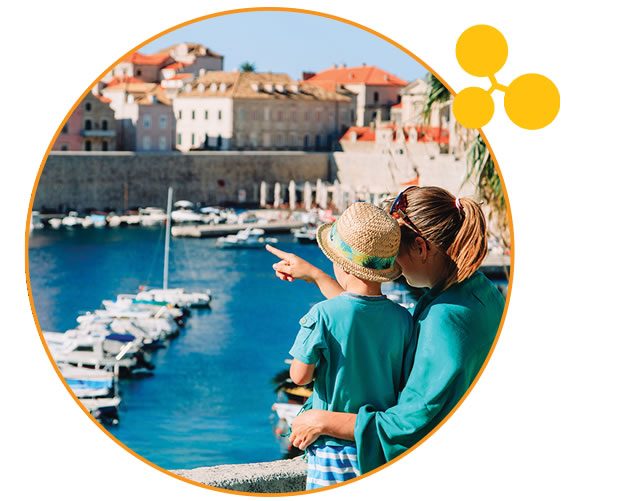
3.2. Nationals of the European Economic Area
EEA nationals do not need to register their stay or work if they plan to stay/work up to 3 months in Croatia. If they plan to stay/work longer than 3 months they need to register their temporary stay.
Option 1: Certificate of the registration of temporary residence for the purpose of work
(Potvrda o prijavi privremenog boravka u svrhu rada)
WHY?
In case you plan to work or do research in Croatia longer than 3 months either being employed or self-employed.
WHO?
Foreign researchers who are nationals of the European Economic Area countries (28 EU Member States and Iceland, Liechtenstein, Norway, and Switzerland), who have concluded an employment contract with their employer or who are self-employed, and who are nationals of the EU Member States with which Croatia has no mutual employment restrictions.
HOW?
An application for issuing a certificate of the registration of temporary residence for the purpose of work can be submitted only by the EEA national himself, to the competent police directorate or police station.
Documents needed to apply for a certificate of the registration of temporary residence for the purpose of work:
- application form 1b,
https://mup.gov.hr/UserDocsImages/dokumenti/stranci/2013/obrazac_1b.pdf - valid personal identity card or travel document – original and copy
- employment agreement – original and copy.
Nationals of the EEA countries do not have to apply for a biometric residence card. After the submission of the application for a temporary stay permit, police directorate or police station will issue a certificate on registration of temporary residence which is a sufficient proof of validity of their temporary stay in Croatia.
WHERE?
An application for issuing a certificate of the registration of temporary residence for the purpose of work can be submitted by the foreigner himself, to the competent police directorate or police station according to his or her place of residence.
The organisation of police administration in Croatia (police stations):https://mup.gov.hr/kontakti-281975/281975
HOW MUCH?
Nationals of EEA countries may apply for a biometric residence card, but are not obliged to. In case they apply, the cost of a biometric residence card is HRK 240 (approximately EUR 30). Biometric residence card will be issued within approximately three weeks from the submission of required documents.
WHEN?
Researchers from the EEA countries with no mutual employment restrictions with Croatia do not have an obligation to report their stay and work in Croatia up to 3 months from the day of entry to Croatia.
In case they can anticipate that their work in Croatia shall last longer than 3 months, it is advisable to apply for the certificate of the registration of temporary residence for the purpose of work upon their arrival to Croatia approximately a week before they start to work (in order for the employer to timely register the researcher with the Health Insurance Fund and the Croatian Pension Insurance Institute).
TIPS
Researchers from Austria with which Croatia still has mutual employment restrictions in place are considered as third-country nationals. They shall undergo the same procedure of approving their temporary residence as third-country nationals, as described in Chapter 3.1.2., option 3.
For more information about mutual employment restriction, please visit the official webpage of the Ministry of Labour and Social Security:http://www.mrms.hr (in Croatian).
Option 2: Certificate of the registration of temporary residence for the purpose of studying or occupational training
(Potvrda o prijavi privremenog boravka u svrhu studiranja ili strukovne izobrazbe)
WHY?
Nationals of EEA countries intending to study or attend an occupational training in Croatia must regulate their temporary residence for the purpose of studying or occupational training.
WHO?
International students (can apply to PhD students as well) coming to study to Croatia as regular students or in the framework of a student mobility programme or for occupational traineeships.
HOW?
Documents needed to apply for a certificate of the registration of temporary residence for the purpose of study or occupational training:
- application form 1b,
https://mup.gov.hr/UserDocsImages/dokumenti/stranci/2013/obrazac_1b.pdf
- proof of admittance to a higher education institution in Croatia for the purpose of studying or vocational training – (in Croatian)
- a statement on the means of support for themselves and their family members so that they do not become a burden to Croatian Social System
- proof of health insurance*
! *Proof of health insurance: EEA students who have the European Health Insurance Card may use urgent healthcare services upon presentation of the card and submission of the printout copy of the card, if other instructions are not given, according to the Croatian legislation in force. EEA students that do not use the European Health Insurance Card are obliged to have a health insurance policy during their stay in Croatia. Croatian Health Insurance Fund, for example, offers health insurance for HRK 417 per month (approximately EUR 55) and entitles the user to full healthcare coverage. A private health insurance policy from another EU Member State is also a valid (proof of) health insurance in Croatia.
WHERE?
An application for issuing a certificate of the registration of temporary residence for the purpose of studying or occupational training can be submitted by the foreigner himself, to the competent police directorate or police station.
The organisation of police administration in Croatia (police stations):https://mup.gov.hr/kontakti-281975/281975
HOW MUCH?
Nationals of EEA countries may apply for a biometric residence card, but are not obliged to. In case they apply, the cost of a biometric residence card is HRK 240 (approximately EUR 30). Biometric residence card will be issued within approximately three weeks from the submission of required documents.
WHEN?
Students from the EEA countries do not have an obligation to report their stay and studies in Croatia up to 3 months from the day of their entry to Croatia. However, they need to report their address at the competent police administration office or police station within three days from the date of entry to Croatia, if this is not done automatically by their accommodation provider.
Students only need to apply for the certificate of the registration of temporary residence for the purpose of studying or occupational training if they plan to study in Croatia longer than three months at the competent police directorate or police station within 8 days from the expiration of their three-month stay in Croatia.
TIPS
Student work – Foreigners with the status of regular pupils or students in Croatia, provided they find a job through the mediation of authorised student agencies, may work without a stay and work permit or a work registration certificate.
Useful information for international students may be found on the Study in Croatia portal:www.studyincroatia.hr.
Option 3: Registration of temporary stay of a family member
(Prijava privremenog boravka člana obitelji)
WHY?
In order to regulate the stay in Croatia on the basis of an immediate family member's permit.
WHO?
Members of the nuclear family of an EEA researcher who has already been granted a temporary stay. Family members may be EEA nationals as well as non-EEA nationals.
Members of the nuclear family are:
1. Spouses
2. The common-law partner in line with Croatian legislation, and persons in a durable relationship which can be demonstrated by shared residence at the same address in the duration of at least three years, and if the intention of continuing to live together is evident.
3. Relatives of a national of the EEA Member State and of his spouse or common-law partner by blood in the vertical line downwards, until they have reached 21 years of age.
4. Adopted children and step-children of a national of the EEA Member State or of his spouse or common-law partner, until they have reached 21 years of age.
5. Persons referred to in Points 3 and 4 of this Paragraph who are above 21 years of age and who must be and actually have been supported by a national of the EEA Member State, or by his spouse or common-law partner.
6. Relatives by blood in the vertical line upwards, who must be and actually have been supported by a national of the EEA Member State or by his spouse or common-law partner.
7. Other members of the family of a national of the EEA Member State for whom an individual assessment determines that in view of their material and social positions in the country they arrived from, they are dependent on the national of the EEA Member State in terms of providing for their basic needs, or they are members of his household, or for whom, due to serious health-related reasons, a special personal care of the national of the EEA Member State is required.

HOW?
Family members who are EEA nationals apply for a certificate of the registration of temporary stay. Family members who are not nationals of the EEA countries apply for a biometric residence card.
Documents needed to apply for registration of temporary stay of a family member:
- application form 1b (for family members who are EEA nationals),
https://mup.gov.hr/UserDocsImages/dokumenti/stranci/2013/obrazac_1b.pdf
- application form 2b (for family members who are not EEA nationals),
https://mup.gov.hr/UserDocsImages//dokumenti/stranci/2013//obrazac_2b.pdf
- valid identity card or passport – original and copy*
- proof of means of support **
- a document proving that he or she is the family member of an EEA citizen
- or proving a marriage – a marriage certificate (not older than six months) or certified statement from both spouses on the existence of the marriage (if the marriage certificate is older than six months)
- for proving a common-law marriage - a statement from both common-law spouses on the existence of the common-law marriage, proof of common address for three years prior to the submission of the application, birth certificates for both common-law partners and the child, if a child was born, as well as other proof of the existence of the common-law marriage
- for proving a child-parent relationship – a birth certificate (not older than six months) or a decision of a competent authority on child adoption
- for proving the relationship of the family member with a national of a Member State EEA which would indicate the need for the reunification due to the material needs of healthcare or by a national of a Member State EEA with whom reunification is sought (medical records, proof on the maintenance or custody, etc.).
! *Family members who are not EEA nationals need to bring an original and a copy of a valid passport.
! **Proof of means of support for both EEA nationals and non-EEA nationals: a certified copy of the last three received salaries, a tax ruling, pension excerpt, employment agreement or written confirmation on the employment agreement or a corresponding proof showing the amount of salary (if a third-country national works less than 3 months), evidence of scholarship, etc.
WHERE?
An application for registration of temporary stay of a family member can be submitted by the foreigner himself at the competent police directorate or police station according to his or her place of residence. If a family member who is a third-country national is subject to visa requirements, (s)he needs to obtain a visa before entering Croatia (see Chapter 3.1.1). Visa application will be processed faster and without charging visa fees, with the presentation of only the minimum documentation: a visa application form, valid passport, photo and a proof of family relationship with an EU or an EEA Member State citizen.
As an exception, such a family member can travel without a visa to Croatia only if (s)he already has a valid passport and a valid identification card called "Residence card of a family member of a Union citizen", and if (s)he travels with or joins the family member who is a citizen of the European Union or an EEA Member State.
The organisation of police administration in Croatia (police stations):https://mup.gov.hr/kontakti-281975/281975
HOW MUCH?
Nationals of EEA countries may apply for a biometric residence card, but are not obliged to. In case they apply, the cost of a biometric residence card is HRK 240 (approximately EUR 30). Biometric residence card will be issued within approximately three weeks from the submission of required documents. Non-EEA nationals need to apply for a biometric residence card.
WHEN?
EEA nationals do not have an obligation to report their stay in Croatia up to 3 months from the day of entry to Croatia. If they plan to stay in Croatia longer than three months, within 8 days from the expiration of their three-month stay in Croatia, they need to apply for a certificate of the registration of temporary residence of a family member who is a national of the EEA Member State at the competent police directorate or police station. Non-EEA nationals also need to apply for a biometric residence card within 8 days from the expiration of their three-month stay.
TIPS
When applying first time for the registration of temporary residence of a family member at the police directorate or police station, all family members have to be present, including minor children and babies. In the case of the application for the certificate of the registration of temporary residence for minor children, both parents need to sign the application form.
Termination of temporary residence of EEA nationals
Temporary residence of a national of the EEA Member State shall terminate if:
1. He is prohibited to enter and to reside in Croatia.
2. He obtained temporary residence by having provided false information or having concealed the true information and circumstances which were decisive for the registration of temporary residence.
3. He no longer meets the conditions for temporary residence.
4. He cancels his residence in Croatia.
Temporary residence of a national of the EEA Member State and of a member of his family shall not terminate if he does not have sufficient funds for supporting himself during his residence in Croatia, provided that the national of such an EEA Member State is employed or self-employed or provided that he arrived with the intention of employment, and he proves that he continues to actively seek a job where it could be reasonably assumed that he would be able to find a job.

Option 4: Permanent stay of an EEA national
(Stalni boravak državljanina države članice EGP-a)
WHY?
If you plan to stay and work in Croatia for a longer period of time, longer than 5 years.
WHO?
EEA nationals who have been legally residing in Croatia for an uninterrupted period of 5 years before the submission of the application. Periods of absence from Croatia shall not be taken into account for the calculation of a 5-year period when they are shorter than 6 months (in one year) or up to 12 months continuously, for justified reasons such as pregnancy, childbirth, serious illness, studies, professional training, assignment to work in another country or for duration of military service.
HOW?
At the time when the permanent stay is being granted, a temporary stay permit must still be valid.
Permanent stay shall be granted to EEA nationals who:
- have submitted Application form 3b:
https://mup.gov.hr/UserDocsImages//dokumenti/stranci/2013//obrazac_3b.pdf
- have a valid foreign travel document.
WHERE?
A request for a permanent stay must be submitted at the competent police directorate or police station according to the place of registered residence stay.
HOW MUCH?
There are no costs for granting the permit for permanent stay. EEA citizen needs to apply for a biometric residence card and the cost is HRK 79,50 (approximately EUR 10) for the production of the card.
WHEN?
After at least 5 years of residence in Croatia with a temporary stay permit. An EEA national shall be issued the permit as soon as possible. The uninterrupted residence shall not be affected by the time of absence from Croatia of up to 6 months per year, or up to 12 months continuously for justified reasons (pregnancy, childbirth, serious illness, studies, professional training, assignment to work in another country), or for duration of military service.
TIPS
A family member who is not a national of an EEA Member State, and who has been legally residing in Croatia with the national of an EEA Member State for at least five years without interruptions, is entitled to permanent stay as well.
3.3. Mobility during your stay in Croatia
(third-country nationals and EEA nationals)
WHY?
If you have a secondment to an institution in another country, need to return to your own country for a short while, wish to visit a conference or seminar abroad, etc.
WHO?
Third-country nationals and EEA nationals with a temporary stay permit.
HOW?
If a third-country national, who is in Croatia on a temporary stay, goes abroad for less than 30 days at a time, (s)he does not need to notify the authorities.
If third-country nationals leave Croatia for a single period of 30-90 days for justifiable reasons, they need to notify the police directorate or police station with an official letter (dopis). If third-country nationals stay abroad for more than 30 days at a time without notifying the authorities, their temporary stay permit will be revoked.
The abovementioned restrictions do not apply to EEA nationals regarding their absence from Croatia.
WHERE?
The organisation of police administration in Croatia (police stations):https://mup.gov.hr/kontakti-281975/281975
WHEN?
A foreigner with a temporary stay permit who has been abroad for up to 90 days for justifiable reasons needs to notify the competent police directorate or police station at the latest 10 days after returning to Croatia.
TIPS
A third-country national who has been granted a temporary stay in Croatia may not leave the country for longer than 90 days. If they wish to do this, they need to “cancel” their temporary stay, give notice of their departure at a police directorate or police station and re-apply for a temporary stay permit upon their return.
Before leaving Croatia for another country, it is advisable to check whether you need a visa to enter that country. If you do, you may apply for it in foreign diplomatic missions and consular offices in Croatia. A full list of these offices is available here:http://www.mvep.hr/en/diplomatic-directory/diplomatic-missions-and-consular-offices-of-croatia.

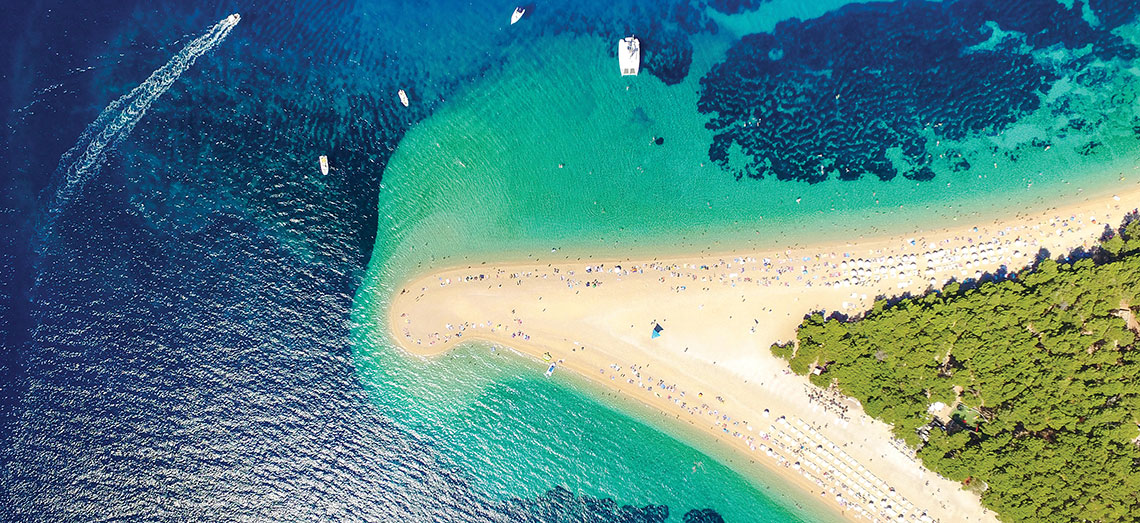
During your stay in Croatia (third-country nationals and EEA nationals)
4.1. Registration/cancellation of residence and address
(Prijava/odjava boravišta i adrese stanovanja)
WHY?
To report the registration, change or cancellation of residence and address to the authorities.
WHO?
Third - country nationals on short-term stay (registration of address), temporary stay (registration of temporary residence and address) and permanent stay (registration of permanent residence and address).
HOW?
Documents required for the registration/change/cancellation of a third-country national’s temporary and permanent residence and address (boravište, prebivalište i adresa) for foreigners on a temporary or permanent stay are:
1. Application form 8a:
https://mup.gov.hr/UserDocsImages/dokumenti/stranci/2013/Obrazac%208a.pdf
2. One of the following documents: a foreign travel document, a foreign identity card, certificate on temporary retaining or seizure of a travel document, certificate on reporting a travel document as missing.
3. Proof of identity, if an applicant is entering information into the form on the basis of data from the certificate of temporary retaining or seizure of travel documents or the certificate of reporting a travel document as missing.
4. Proof of supporting facts which are the basis of registration of temporary or permanent residence and address for a foreigner on a temporary stay:
- ownership certificate – original or a document available online:
http://e-izvadak.pravosudje.hr/home.htm (not older than six months)
- lease agreement – original (with certified signatures)* and a regular copy
- donation agreement
- sale and purchase agreement, etc.
! *If there is no certified lease agreement, the landlord may come with the foreigner to the police directorate or police station and give a statement on lease personally.
Legal and natural persons providing accommodation services to third-country nationals on a short-term stay (hotels, hostels, motels, etc.), but also health institutions and tourist boards, have to register foreigners through a tourist community office or electronically, online, within 1 day from the arrival of the foreigner. If a foreigner on a short-term stay is staying in Croatia in a private arrangement, (s)he needs to register the accommodation within 2 days from the arrival at the competent police directorate or police station.
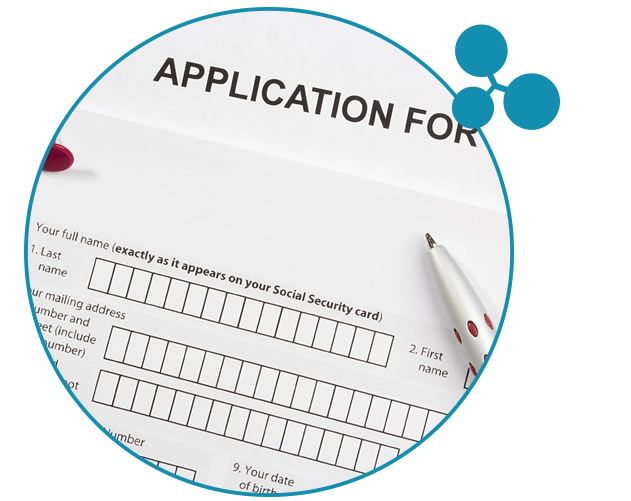
WHERE?
An application for registration/change/cancellation of residence and address for foreigners must be submitted at the competent police directorate or police station according to the residence and address in which a foreigner wishes to reside, or according to the registered residence and address in case of change or cancellation.
The organisation of police administration in Croatia (police stations):https://mup.gov.hr/kontakti-281975/281975
HOW MUCH?
This procedure is free of charge.
WHEN?
Third-country nationals on a short-term stay in Croatia (less than 90 days) are obliged to report their address within two days of entering Croatia, if their residence is not reported by an accommodation service provider, health institution or a tourist board.
Third-country nationals on a temporary stay in Croatia (longer than 90 days) are obliged to report their temporary residence and address (boravište i adresa) and any change in their residence and address to the nearest police directorate within three days from their entry to Croatia and from the day of changing their home address, respectively.
Third-country nationals with a permanent stay in Croatia are obliged to report their permanent residence and address (prebivalište i adresa), as well as possible temporary residence, and any change in their residence and home address to the competent authority within eight days from the day of changing their residence and home address.
TIPS
Temporary residence means a place where a foreigner holding a temporary or permanent residence is residing.
Permanent residence or domicile means a place where a foreigner holding permanent residence is settled with the intention to live there.
Change of address refers only to the change of the address within the same place of residence (e.g. a city). If the change refers to a new address in a different place, then this is a case of change of address and residence. It is usually done according to the same procedure.
EEA nationals do not need to register their temporary stay and address during the first 3 months of stay in Croatia. However, if they plan to work for more than 3 months in Croatia they need to register their address and apply for a Certificate of the registration of temporary residence for the purpose of work (Chapter 3.2.).
Practical note: The address is usually registered in parallel with the application for the registration of your stay (see Chapter 3.1.2. and 3.2.)!
4.2. Getting a Croatian personal identification number (PIN) - OIB (osobni identifikacijski broj)
WHY?
OIB is a personal identity number, called osobni identifikacijski broj in Croatian. This new form of identity number was introduced on 1 January 2009. OIB is needed for all dealings with any kind of officialdom, such as paying taxes and household bills, opening and accessing a bank account, or registering a vehicle.
WHO?
Foreigners temporarily staying in Croatia as well as all foreigners staying less than 90 days earning an income in Croatia.
WHERE?
Foreigners temporarily staying in Croatia will get the OIB automatically upon registration of their stay in the police station, no special application is necessary (for more information, see Chapter 3.1.). If a foreigner already received the OIB number from the Tax Department of the Ministry of Finance, it is advisable to submit a copy of the OIB confirmation while submitting the temporary stay application (to avoid duplications).
In all other cases, the OIB is issued by the Tax Department of the Ministry of Finance, in regional offices.
List of Tax offices in Croatia: www.porezna-uprava.hr/.
HOW?
The application must be submitted in person, together with the original supporting documents, or by some other authorized person (employer, host institution, etc.). The OIB is issued immediately.
List of documents:
1) OIB request*(application form is available in English and German,http://www.porezna-uprava.hr/en/EN_obrasci/Documents/PINrequest.pdf,
http://www.porezna-uprava.hr/en/EN_obrasci/Documents/Deutsche_beantragenPIN.pdf)
2) Authorization for the employer signed by the foreigner (if the request is not submitted in person) – in Croatian**
3) Copy of a valid travel document, or some other identity document (original may be asked for inspection).
! *The form is divided into three parts: as an individual, please fill in part 1 and 3.
! **If the application is submitted by a natural person for a foreigner, the authorization must be certified.
HOW MUCH?
This is a straightforward procedure free of charge.
WHEN?
Foreigners temporarily staying in Croatia will get an OIB automatically upon the approval of their temporary stay in Croatia, at the competent police directorate or police station, or upon their request for issuing an OIB number at the Tax Department of the Ministry of Finance. Those staying less than 3 months will require an OIB at the time they receive an income or any other situation where the OIB is necessary.
TIPS
The OIB document is comprised of two parts: a slip containing the number, which you should detach and keep in your wallet or in a safe place, as it is the official proof of your OIB. The upper part contains a system code and explanatory statements. From 1 January 2010 the OIB is also used as a tax number.

4.3. Health insurance registration
(Prijava na zdravstveno osiguranje)
Generally, there are two kinds of health insurance. One is travel health insurance for the purpose of short-term stay and visa issuance, and another is health insurance under the Croatian Health Insurance Fund (HZZO) for the purpose of temporary and permanent stay.
Travel health insurance for visa issuance (third-country nationals)
Applicants for travel visas for one or two entries have to provide a proof of health insurance - policy of appropriate and valid travel health insurance covering the entire period of their stay in Croatia.
An appropriate and valid travel health insurance covers the costs that might be incurred during a foreigner’s stay in Croatia in regard to the return to his/her homeland due to health reasons, urgent medical assistance and/or urgent hospital treatment.
Applicants for multiple-entry visas have to provide a proof of health insurance - policy of an appropriate and valid travel health insurance covering the period of their first stay in Croatia. Furthermore, applicants for travel visas for an unlimited number of entries have to fill out a statement regarding health or travel health insurance for subsequent visits (declaration on travel medical insurance for subsequent visits). Applicants are obliged to take out travel health insurance with an insurance company in the country of their stay. If that is not possible, travel health insurance needs to be taken out in another country. Natural or legal persons from Croatia inviting the applicant can, on their behalf, take out travel health insurance with an insurance company from Croatia. The lowest sum insured must be in HRK equivalent to EUR 30 000.

Health insurance with the Croatian Health Insurance Fund (third-country nationals and EEA nationals)
WHY?
Regulated health insurance is a prerequisite for being granted a temporary stay, except for foreigners on a temporary stay for the purpose of research – they must have the provision of health insurance stipulated in the hosting agreement. For more information please see Chapter 2.3., Option 3.
WHO?
During their stay in Croatia, all foreigners with a temporary or permanent stay must have health insurance. If a foreigner is employed, his/her employer will perform the registration to a health insurance. If not, the foreigner needs to register personally at the Croatian Health Insurance Fund (or buy an insurance policy at a private insurance company).
HOW?
If the third country national is not employed, the procedure to register with the HZZO is the following:
- Upon arrival, the foreigner needs to submit an application to register the temporary stay at the police directorate or police station, where they will be issued a registration number (evidencijski broj) upon approval of the temporary stay.
- On the basis of this registration number the HZZO office will register the person and issue a relevant confirmation, which entitles the foreigner and binds the HZZO to full health insurance coverage.
- After the payment of the payment orders, a third country national shall afterwards receive payment orders for monthly payment of the healthcare contributions and will be entitled to full medical care in Croatia.
Necessary documents:
- original and a copy of a valid travel document (including the page with the relevant visa)
- original and a copy of the confirmation of residence
- original and a copy of the temporary stay permit (biometric residence card)
- confirmation on the submission of the application for a temporary stay (containing registration number, evidencijski broj) and
- confirmation on OIB identity number.
WHERE?
At the Croatian Health Insurance Fund. Locations of local offices of the Croatian Institute for Health Insurance:
HOW MUCH?
For third-country nationals it is HRK 417,00 per month (approximately EUR 55) payable at once for one year prior to stay in Croatia (a total of approximately HRK 5 000 / EUR 650). Money order is received at the HZZO office at registration. Afterwards, HZZO informs the Tax Administration of the Ministry of Finance which then issues and sends monthly money orders (uplatnica) to foreigner for the next year of insurance during his/her stay in Croatia.
EEA nationals also receive money orders (uplatnica) from the Tax Administration of the Ministry of Finance in the amount of HRK 417 per month for the duration of their stay only.
WHEN?
Within 8 days from the approved temporary stay in Croatia.
TIPS
An employment contract (or an equally valid hosting agreement) is needed in order for the employer to register a foreign researcher as an employee with the Croatian Health Insurance Fund (HZZO). The application process for employed foreigners in the Croatian Health Insurance Fund (as well as the Croatian Pension Insurance Institute) is the same as application procedures for employees who are Croatian nationals.
Upon the extension of a temporary stay, it is necessary to inform the HZZO about it and bring the new approval of temporary stay or the biometric residence card for inspection.
Please note: Family members of a researcher on a temporary stay cannot be insured on the basis of researcher’s insurance (i.e. employment). This is only possible when the researcher’s family members have a permanent stay in Croatia or are EEA citizens with a temporary stay in Croatia.
4.4. Pension insurance registration
(Prijava na mirovinsko osiguranje)
The application process for foreigners in the Croatian Pension Insurance Institute is the same as the application procedure for employees who are Croatian citizens.
Croatian employers who employ foreigners pay contributions for compulsory insurance in the same way as for employees who are Croatian citizens.
The pension system in Croatia is a combined public/private system, based on a three - pillars scheme.
1st Pillar: Pay as you go (PAYGO) system financed by contributions and state budget revenues
The first pillar mandatory pension fund is the responsibility of the Croatian Pension Insurance Institute (HZMO). All employees are obliged to pay 15 % of their total monthly income into the fund. The protection of the beneficiaries is provided in the form of a minimum pension (guaranteed right), and restriction in the form of maximum pension. The acquisition of all first pillar pensions depends, in addition to age conditions, on the length of qualifying (mostly insurance) periods completed.
2nd Pillar: Compulsory pension insurance based on individual capitalized savings
The second pillar is mandatory for persons who were under the age of 40 in 2002 and is additional to the first pillar. Persons who were aged between 40 and 50 in 2002 were able to opt out. Those who did, as well as people older than 50 in 2002, remained insured only under the first pillar, but their contribution equals 20 % of gross salary, thus ensuring equality. For those insured under both pillars, the extra 5 % of total contribution (additional to 15 % paid under the first pillar) is directed to the second pillar funds (a private pension fund).
3rd Pillar: Voluntary pension insurance based on individual capitalized savings
Open to all citizens since March 2002. Every person residing in Croatia can be insured under the 3rd pillar. There are several Voluntary Funds in Croatia.
More information may be found here: http://www.mirovinsko.hr/default.aspx?id=4300.
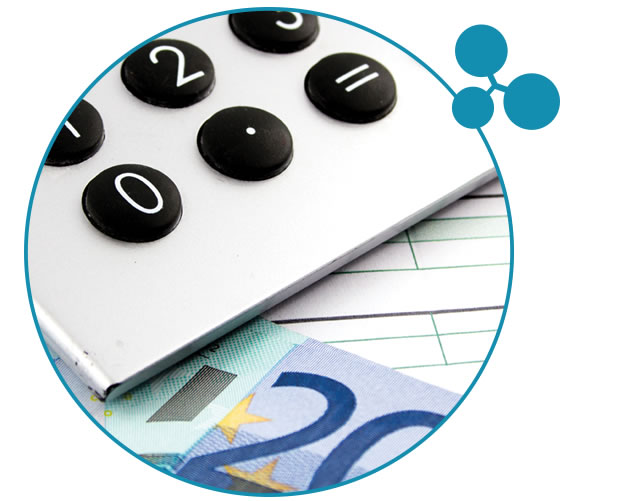
Pension insurance
WHY?
If the country where the researcher lives and works has signed an agreement on social security with Croatia, under certain conditions, their contribution periods completed in the Croatian pension insurance and in the other state can be aggregated for the acquisition of pension rights in both states.
WHO?
Foreign researchers working in Croatia.
HOW?
This procedure is usually done by the employer by E-application.
E-application is a web application enabling its users to register in/deregister from the pension insurance, report their status change occurred during the insurance period, report the commencement/cessation of the business operation of a contribution payer or report the change of its data.
Documents needed:
- application form M-1P
- employment contract or any other contract containing essential clauses of an employment contract.
WHERE?
If not done electronically, then at the Croatian Pension Insurance Institute (HZMO). More information: https://www.mirovinsko.hr/en/application-for-insurance-and-end-of-insurance/234 (in English).
HOW MUCH?
15 % of your total monthly income for the first pillar, and for the second pillar additional 5 % of your total monthly income – in principle subtracted from the salary directly by the employer.
WHEN?
Within 8 days before you start working or at the latest before the start of work.
TIPS
Since 1 July 2013, the Croatian Pension Insurance Institute has been providing an electronic database record about the labour and legal status of its insurees – electronic record, as a replacement for the employment book (radna knjižica). Such electronic record (evidence of a qualifying period) can be obtained via e-građani electronic service (accessible by the provision of e-Pass electronic credentials), or by applying at www.mirovinsko.hr or in person, in all regional offices and affiliates of the HZMO with the obligatory identification by ID card and OIB number.
4.5. Taxation
4.5.1. Taxes in Croatia
The Croatian tax system is very much compatible with those of the EU Member States and is based around a set of direct and indirect taxes. Croatia has taken over the obligations of executing international contracts and agreements signed by ex-Yugoslavia and has also signed many bilateral agreements on avoidance of double taxation.
The Croatian tax system includes:
- national taxes: value added tax; corporate income tax – profit tax; special taxes and excise duties - special taxes on motor vehicles, special tax on coffee and non-alcoholic beverages, tax on liability and comprehensive road vehicle insurance premiums, excise duties levied on alcohol, alcoholic beverages, tobacco products, energy products, and electricity;
- county taxes: inheritance and gift tax, tax on road motor vehicles, tax on vessels and tax on coin-operated machines for games for amusement;
- city or municipal taxes;
- joint taxes: income tax, real estate transfer tax.
4.5.2. Personal income tax (Porez na dohodak)
WHY?
In the case when income derives from sources within Croatia, researchers are obliged to pay income tax.
WHO?
A tax payer is a domestic or foreign natural person who generates income. Resident individuals pay tax on worldwide income. Non-resident individuals only pay tax on income which is derived from sources within Croatia. Income tax is levied and paid for the calendar year (the taxable period). The taxable period may be shorter than the calendar year if a resident becomes a non-resident during a single calendar year, or vice versa.

According to Croatian laws, a resident is a natural person with domicile or habitual residence in the Republic of Croatia. A non-resident is a person who has neither domicile nor habitual residence in Croatia, but earns a taxable income in Croatia. A domicile, according to tax laws, is the ownership or use (note: a lease contract applies) of a housing unit for at least 183 days continuously in one or two calendar years – actual occupation of the unit is not necessary. Habitual residence is implied when circumstances lead to the conclusion that the tax payer’s residence is not temporary. In the sphere of tax laws, this is concluded after a continuous residence of at least 183 days in one or two calendar years (short interruptions of residence, not longer than one year, are not regarded).
Regardless of whether you are a tax resident or not, you will have to pay income tax on the following:
- income from employment
- income from independent personal activities (self-employment)
- income from property and property rights
- income from capital
- income from insurance
- other income.
Please note: For employees receiving a salary, the employer bears the responsibility for income tax. The employer is obliged to pay income tax for the researcher at the same time as the salary.
HOW?
The tax base is total income from employment, self-employment, property and proprietary rights, capital, insurance and other income minus personal allowance. Gross income is reduced by the employee’s pension contribution payments (20% of gross income).
Deductions and allowances – each individual is entitled to a personal allowance of HRK 4 000 HRK per month. The deduction may be further increased for each dependent family member. Tax rates are 20% and 30%, depending on the tax base.
WHERE?
The Tax Administration is an administrative unit within the Ministry of Finance whose basic task is to implement tax regulations and regulations concerning the payment of mandatory contributions. All residents are obliged to participate in the settlement of public expenses in accordance with their economic abilities. The tax system is based on the principles of equality and equity.
The Ministry of Finance, Tax Administration: www.porezna-uprava.hr
HOW MUCH?
The taxable base of a resident is the total amount of income that the taxpayer obtains in Croatia and abroad (income from employment + income from independent personal activities (small business and professional activities) + income from property and property rights + income from capital + income from insurance + other income) reduced by the personal allowance.
The taxable base of a non-resident is the total amount of income that the taxpayer earns in Republic of Croatia (income from employment + income from independent personal activities (small business and professional) + income from property and property rights + income from capital + income from insurance + other income) reduced by the personal allowance.
Tax rates on monthly employment income (amounts in EUR are approximate):
|
Income in HRK/ EUR |
Tax rate |
|
0,00/0,00 – 30 000/4 000 |
20% |
|
30 000/4 000 and above |
30% |
Personal allowance
All tax payers are entitled to a personal allowance in the amount of HRK 4 000 HRK (approximately EUR 500 EUR) per month while taxpayers, residents of Croatia, who support a spouse, children and other family members, can, in addition to the basic personal allowance, also deduct from their taxable income the personal allowance for supported family members. Personal allowance for supported family members is expressed as factors in relation to the basic personal allowances.
Personal allowance of a non-resident may be deducted from his taxable income for a tax period in the amount of the basic personal allowance, but the income may be increased by the amount paid for compulsory health insurance in Croatia, up to the amount of prescribed compulsory health insurance, contributions and by gifts in kind and in cash given in Croatia for cultural, educational, scientific, health-care, humanitarian, sport-related or religious purposes.
Where a natural person who is a resident of an EU Member State or of the EEA, generates taxable income in Croatia which represents the minimum of 90% of his/her worldwide income earned during the taxation period and that is either non-taxable or tax-exempt in the Member State of his/her residence, he/she may by submitting an annual income tax return, and of course increase his/her basic personal allowance by the personal allowance for supported family members and by the personal allowance for disabled (if the tax payer or his/her supported family members are disabled).
WHEN?
The employer is obliged to calculate and pay income tax at each payment and at the same time as the payment of the salary.
The Croatian Tax System – useful information: www.porezna-uprava.hr/en
4.5.3. Fellowship taxation
WHY?
Fellowships are a form of financial aid awarded to individuals for the purposes of their education, training, professional development or research. The Income Tax Bylaw foresees special regulations for fellowships.
WHO?
Students and researchers on a fellowship (scholarship). Fellowship programmes can include degree-programmes (bachelor's, master’s and doctoral study programmes), short-term study programmes, professional development programmes (seminars, conferences, workshops, internships, etc.), scientific research, language-learning, etc. Fellowships are awarded by a wide range of institutions, organizations and individuals from all sectors of society – public, civil, corporate and private.
HOW MUCH?
According to the Income Tax regulations, certain types of scholarships are exempt from income tax, usually scholarships awarded to pupils and students in full-time education at secondary, post-secondary and higher schools and universities, financed either from the State Budget or the EU budget.
Scholarships may also be granted by foundations, agencies and other institutions founded with the intention of granting scholarships, registered in Croatia for the purpose of education or scientific research and acting pursuant to specific regulations. However, this tax-exemption is only valid if the student is enrolled in a regular study programme.
In case of scientific research, the fellowship is not taxable if the financial source is the national budget (for example, if they are financed by the Croatian Science Foundation). Otherwise, the tax shall be paid according to the rule of other income, which means that the fellowship should cover the tax contribution in the fixed amount of 24 % of income. Under certain conditions, fellowships and other types of costs for research projects financed from the EU budget may also be non-taxable.
Scholarships awarded to natural persons from the European Union funds and programmes are also nontaxable under certain conditions. The purpose of these funds is to finance mobility activities, intended for education and training, and to cover the costs of transport, food and accommodation, as well as the implementation of different project activities via an accredited institution in Croatia (such as the Agency for Mobility and EU Programmes for the Erasmus+ programme).
4.5.4. Value Added Tax – VAT
(Porez na dodanu vrijednost, PDV)
Croatia implemented changes to its VAT legislation on 1 July 2013 in order to align further with EU VAT regulations. Croatian VAT law is within the competence of the Croatian Tax Administration (Porezna uprava) under the Ministry of Finance. The standard VAT rate in Croatia is 25 %.
There is e.g. a reduced VAT rate of 13 % for accommodation services as well as daily and periodic newspapers and magazines printed on paper.
VAT at a rate of 5 % is applicable on a range of goods, such as books of professional, scientific, artistic, cultural and educational content and scientific journals.
4.5.5. The tax card
(porezna kartica)
Based on the data from the tax card, a non-taxable portion of income is established – the personal allowance of each employee.
Guidelines for issuing a tax card
A foreigner should apply for a tax card. The following documents need to be submitted to the tax authorities (regional tax offices) in order to obtain a tax card:
1) application form (available in Tax administration offices)
2) copy of the confirmation of registered address
3) OIB number
4) valid travel document – original and a copy (third-country nationals)
5) European ID Card – original and a copy (EEA nationals).
Tax card stays with the employer during the employment period.
City tax will be paid according to the temporary residence (boravište) entered in the tax card. You may have other permanent residence at the same time, but it is not relevant for taxation purposes. It is also necessary to inform your employer of any changes of temporary residence in order to timely pay for the right city tax.
TIPS
1) Avoidance of double taxation
When foreigners (non-residents) are employed in Croatia or are only in Croatia to do a specific, identifiable work/service (as a non-resident) and are paid under a contract for work/services, they should check whether an agreement on avoidance of double taxation between the two countries (Croatia and the country of residence) exists in order to avoid possible double taxation of the same income. If an agreement is existing and applicable, the necessary forms need to be filled out before the completion of the work and payment. The details should be arranged with the Croatian employer.
Among the Agreements concluded and assumed by Croatia, the following are being applied:
The Agreements for avoiding double taxation have been concluded with: Albania, Armenia, Austria, Azerbaijan, Belarus, Belgium, Bosnia and Herzegovina, Bulgaria, Canada, the Czech Republic, Finland, Georgia, Germany, Greece, Hungary, Iran, Ireland, Israel, Korea, Kuwait, Macedonia, Moldova, Montenegro, Netherland, Norway, Poland, Romania, Russia, Serbia, Slovakia, Slovenia, Spain, Sweden, Switzerland, Ukraine, United Kingdom, Chile, China, Denmark, Estonia, France, India, Indonesia, Island, Italy, Jordan, Latvia, Lithuania, Malaysia, Malta, Mauritius, Morocco, Oman, Portugal, Qatar, San Marino, South Africa, Syria, Turkey, and Turkmenistan.
Agreements on avoidance of double taxation are available here:http://www.porezna-uprava.hr/en/EN_porezni_sustav/Pages/double_taxation.aspx (in English).
It is necessary to fill out a form for the avoidance of double taxation if there is an agreement on avoidance of double taxation between Croatia and the foreigner’s country of residence. The form needs to be filled in 4 copies: copy 1 - for the claimant, copy 2 - for the payer of the income, copy 3 - for the Tax Administration of Croatia, copy 4 - for the foreign Tax authority. All 4 copies should be sent to the tax authority of the foreigner’s country for certification. Two copies are sent back to Croatia (one copy is for the payer of the income and one for the Tax administration of Croatia).
Example of a form for the avoidance of double taxation is available here:http://www.porezna-uprava.hr/en/EN_obrasci/Documents/Reimbursements.pdf
After a copy of the form is delivered to the payer of the income, it may be paid without the income tax contributions in Croatia. This, however, does not imply the income is completely non-taxable: taxpayer should be aware of his/her tax obligations in the country of residence.
Please note: It may be necessary to deliver a certified translation of the form for the avoidance of double taxation of income to the country of residence tax authorities. Croatian form for the avoidance of double taxation is available in Croatian and English. From 1 January 2016 agreements on avoidance of double taxation are in force and in effect with the following countries: India, Portugal, and Turkmenistan.
2) Income taxation
There are several online tools and websites where income taxation can be calculated. Among others, income taxation can be calculated on the following websites:www.isplate.info, www.rrif.hr ,and www.teb.hr.
4.6. Managing a bank account in Croatia
There are no restrictions on foreigners to open a bank account in Croatia. However, an account can only be opened by visiting a bank in person. Banks usually offer a choice between current accounts (for salaries), giro accounts (for other income) and savings accounts. Accounts can be opened in Croatian kuna (HRK) or a foreign currency or as a multi-currency account. Normally, opening an account only requires an ID and a small deposit, although sometimes the banks might ask for a proof of residency in Croatia (particularly for giro or savings accounts in HRK). Some banks automatically give a debit card and an overdraft allowance of up to HRK 30 000. Others prefer that you apply for an overdraft once your account is set up.
Charges for accounts vary from bank to bank and account to account. For example, student accounts are generally free.
Bank hours are usually Monday - Friday, 8 am – 7 pm, while some banks are open on Saturday mornings.
The following documents are needed to open a bank account:
1) passport, ID or identification card for foreigners issued by Croatian authorities
2) residence permit, issued by the Croatian Ministry of Interior
3) confirmation on the issuance of OIB number, issued by the tax authority in Croatia.
There are usually no charges for opening a current account, but there are charges for running accounts and these vary depending on the bank. Some banks also charge a fee for closing an account.
When opening a current account in Croatia, researchers will receive a bank card by mail (it usually takes seven days) and a PIN number which will allow the account holder to withdraw cash from almost every cash point in the country. The card also enables the holder to check the account balance and pay bills (if paying bills in branch offices of other banks or post offices, a small fee is charged). Most of the banks also offer electronic services which allow users to manage their bank affairs online.
For a list of licensed banks in Croatia, please consult the database of the Croatian National Bank (HNB):https://www.hnb.hr/temeljne-funkcije/supervizija/popis-kreditnih-institucija

Money transfer
Some of the safest ways of transferring money to and from Croatia include Western Union, Eurogiro and direct account-to-account transfers using IBAN or SWIFT/BIC code of the bank.
Websites such as PayPal, Moneybookers, and Iboko also provide this service.
The government does not set restrictions on money transfers, although some banks do. Check with your bank to see if there is a maximum you can send or receive. Usually, service fees are levied on international transactions (especially if there is a currency exchange). An extra commission fee is charged for every money transfer to and from abroad. The commission depends on the destination and the amount being transferred.
4.7. Professional recognition of a higher education qualification
(Stručno priznavanje inozemne visokoškolske kvalifikacije)
WHY?
For the purpose of employment (if required by the institution or company of employment) in Croatia.
WHO?
Researchers and graduates.
HOW?
The Agency for Science and Higher Education is in charge of the Croatian ENIC/NARIC Office, which conducts the professional recognition procedure. The Office is a part of the European Network of National Information Centres on recognition and mobility.
Guidelines for initiating the procedure of professional recognition of foreign higher education qualifications:
- fill out the application form,
https://www.azvo.hr/en/enic-naric-office/guidelines-for-starting-the-procedure-for-professional-recognition-of-foreign-heq#1
- collect documents required for professional recognition of foreign higher education qualifications
- pay administrative fee
- submit documents.
List of documents needed:
- original or a certified copy of the foreign qualification
- certified translation of the foreign qualification into Croatian
- original or a certified copy of the official grade transcript
- certified translation of the grade transcript into Croatian
- CV in Croatian or English pointing out the course of education and work experience (when applying for the recognition of PhD, list your published scientific papers and where they have been published)
- original or certified copies of previously acquired higher qualification(s), if any obtained
- certificate of citizenship (original or a certified copy of domovnica or passport for foreigners), certificate for refugee status or status of exile
- proof of payment of administrative fees
- for applicants who have changed their first and/or last name, copy of the marriage certificate or official decision of the competent authority
- one uncertified copy of all enclosed documents including the application form.
The procedure consists of several steps:
1. After receiving and processing the application, the Croatian ENIC/NARIC Office advises the applicant on required supplements if the application is incomplete.
2. The Croatian ENIC/NARIC Office examines the accreditation of the institution wherein a foreign higher education qualification is acquired, accreditation of the study programme in question, authenticity of the foreign higher education qualification for which recognition is being requested, entitlements and possibilities that the qualification ensures in the country of issue.
3. The Agency for Science and Higher Education issues a decision on the recognition of the foreign higher education qualification.
4. The decision on professional recognition of the foreign higher education qualification is mailed to the applicant’s address specified in the application for recognition.
WHERE?
To the Croatian ENIC/NARIC Office: www.azvo.hr
HOW MUCH?
Professional recognition of foreign higher education qualifications on completed undergraduate, graduate and postgraduate university and professional study programmes: HRK 400 (approximately EUR 55).
WHEN?
The Agency for Science and Higher Education is required to make a decision on the recognition of higher education within 60 days from the date of the submission of the application for professional recognition.
TIPS
For other information about applying for the recognition of foreign higher education qualifications and degrees, please contact Croatian ENIC NARIC Office through the following link: http://www.azvo.hr (English >International activities>National ENIC/NARIC office).
4.8. Academic recognition of a higher education qualification
(Akademsko priznavanje inozemne visokoškolske kvalifikacije)
WHY?
For the purpose of continuing education in Croatia.
WHO?
Students, both Croatian and international, returning after a period of study abroad.
HOW?
Prospective students who wish to apply for postgraduate study programmes and have a foreign higher education qualification or degree will need to undergo the process of academic recognition for the purpose of continuation of education in Croatia. All higher education institutions that accept international students usually have an Academic Recognition Office and prospective students should contact that office well before applying in order to obtain relevant information on which education qualifications need to be recognised in order to apply for the study programme in question.
Students who apply for exchange programmes usually do not need to have their previous education qualifications recognised. Agreements between higher education partner institutions and the application procedures for an exchange programme normally prescribe the precise admission requirements for exchange students.

WHERE?
At the Office for Academic Recognition of Foreign Higher Education Qualifications at Croatian universities. List of offices in charge of academic recognition at Croatian universities: http://www.studyincroatia.hr (Foreign qualifications and degrees > Academic recognition).
HOW MUCH?
The fee for the issuance of the recognition of higher education qualifications is HRK 400 (approximately EUR 55). The processing fee for the recognition of periods of study is HRK 200 (approximately EUR 25).
WHEN?
Well before applying in order to obtain relevant information on which education qualifications need to be recognised in order to apply for the study programme in question.
4.9. Election to a scientific title
(Izbor u znanstveno zvanje)
WHY?
To gain the status of a scientist in Croatia and to gain the possibility for permanent employment funded from the state budget in a public research organisation.
Scientific titles are (in research institutes): research associate (znanstveni suradnik), senior research associate (viši znanstveni suradnik), research advisor (znanstveni savjetnik) and research advisor with tenure (znanstveni savjetnik u trajnom zvanju).
As a research associate, a researcher may be elected having a scientific degree of doctor of science and scientific works which confirm his or her status as a recognized scientist.
As a senior research associate, a researcher may be elected having a scientific degree of doctor of science and scientific works which represent a significant contribution to science and has been working at the position of research associate for at least five years.
As a research advisor and a research advisor with tenure a researcher may be elected having a scientific degree of doctor of science and scientific works which have significantly contributed to the development of science, with special regard to the international affirmation of the scientist, international recognition of his or her scientific work and its significance within the national framework. Additionally, a researcher that has been working for at least five years as a senior research associate, may be elected as a research advisor and a researcher that has been working for at least five years as a research advisor may be elected as a research advisor with tenure.
Exceptionally , if the candidate for election to a scientific title is a researcher who was not employed in Croatia nor elected to any of the Croatian scientific titles, the application for election to a scientific title of a senior research associate, research advisor and research advisor with tenure may be approved, if the researcher meets the conditions required for appointment to a particular title according to Croatian regulations or the researcher has already been elected to an appropriate title.
WHO?
Researchers in possession of a PhD degree.
HOW?
(1) The request for election to a scientific title is submitted to the authorized scientific organisation together with evidence of the fulfilment of the conditions for election to a certain title.
(2) The authorized scientific organization appoints an expert commission within thirty days from the receipt of the request for election to a scientific title at the latest. The expert commission consists of at least three members who must be of the same or higher scientific title with regard to the one for which the election is requested.
(3) The expert commission, on the basis of submitted documentation, determines whether the conditions for the election have been fulfilled and proposes the election or non-election of the applicant to the scientific title. The expert commission submits its report, as a rule, within thirty days from the date of appointment.
(4) On the basis of the report of the expert commission, the authorized scientific organization gives its opinion and proposal to the corresponding field committee within thirty days.
(5) The field committee confirms the opinion and proposal of the authorized scientific organization within sixty days. Failure to meet the specified deadline cannot result with the election to a scientific title.
(6) In the case that the field committee fails to meet the specified deadline, the applicant may require from a corresponding area council to decide on his or her request. In the case that the area council conducts the election procedure, upon missing the deadline, the applicant may address the National Council for Science, Higher Education and Technological Development.
(7) The field committee will not confirm the opinion and proposal of the authorized scientific organization:
1. if it considers them to be given contrary to the conditions for election,
2. if they are evidently in disagreement with the submitted evidence on the fulfilment of the conditions, or
3. if the election procedure has been substantially infringed.
(8) In cases under paragraph 7, the field committee either conducts the procedure by itself within sixty days, or requires from the same authorized scientific organization to repeat the procedure, or requires from another authorized scientific organization to institute a new election procedure.
(9) The decision of the field committee is final.
(10) The field committee forwards the decision on the election (positive or negative) to the applicant and the scientific organization which has conducted the election procedure within fifteen days without delay, and forwards the positive decision on election to a scientific title to the Ministry of Science and Education for the purpose of registering into the Register of Scientists. The certificate of entry into the Register is delivered to the applicant or to the scientific organization upon request (see Chapter 2.5.4.).
(11) The applicant has no right of appeal against the decision on the election, but may initiate an administrative dispute. In the administrative dispute, the decision on the election of the applicant to a scientific title may not be made but the decision may only be invalidated, and the procedure ordered anew.
The National Council for Science, Higher Education and Technological Development prescribes in detail the conditions for the election to scientific titles (art and number of scientific works, evaluation of works, etc.), on the basis of which field committees and commissions for the evaluation of scientists evaluate the overall scientific activity of the applicant, taking into account specific characteristics of particular scientific and artistic areas and individual scientific fields as well as interdisciplinary areas (available in the Ordinance on conditions for election to scientific titles).
WHERE?
The request for election to a scientific title is submitted to the scientific organization authorized for conducting part of the election procedure. If the person who is to be elected is employed at the scientific institution authorized to conduct part of the election procedure, this institution is only competent for carrying out part of the procedure. Upon the grounded request of the person initiating the election, the National Council for Science, Higher Education and Technological Development may also assign another authorized scientific organization to conduct part of the procedure.
If no scientific organization is authorized to conduct part of the election procedure to a certain scientific title in a particular scientific or artistic field or an interdisciplinary scientific or artistic area, and the field committee or the interdisciplinary area committee has not been appointed, the election procedure is conducted by the corresponding scientific or artistic area council. If no scientific or artistic area council is authorized to conduct the procedure, the election procedure is conducted by the National Council for Science, Higher Education and Technological Development, www.nvzvotr.hr/. In that case, the election procedure will be finished within 120 days.
HOW MUCH?
This procedure is free of charge. However, take into account the costs of necessary translations and the recognition of qualifications (see Chapter 2.5.1.).
WHEN?
The procedure lasts approximately 5 months.
TIPS
This procedure is required if you plan to settle down in Croatia and seek permanent employment in publicly funded research jobs. In other cases, this is not a requirement.
Similar is applicable to scientific-teaching titles (in universities and faculties): assistant professor (docent), associate professor (izvanredni professor), full professor (redoviti professor) and full professor with tenure (redoviti profesor u trajnom zvanju). The election procedure and conditions are prescribed in detail by a decision of the Croatian Rectors’ Conference available at
4.10. Register of Researchers
(Upisnik znanstvenika)
WHY?
To have the possibility of a permanent employment in public research organisations in a position funded from the state budget and to gain the status of a scientist.
The Register of Researchers has been established for the purpose of having a database with relevant data of all persons engaged in scientific work. The data is being collected in order to gain insight and systematic monitoring of the overall analysis of the human potential in research in Croatia.
The general requirement for election to a scientific or academic employment position is the entry into the Register of Researchers with the appropriate or higher scientific title. Organizations and scientists not entered into the Register or removed from it may not be funded from the state budget.
WHO?
- research associates, senior research associates, research advisors, and research advisors with tenure
- assistant professors, associate professors, and full-time professors
- assistants and senior assistants
- persons with a doctoral degree.
Exceptionally, foreign organizations and foreign scientists may be, although not entered into the Register, at the proposal of the National Council for Science, Higher Education and Technological Development funded from the state budget if they participate in a project which is of significance to Croatia.
Additionally, persons with a degree of master of science can also be entered into the Register of Researchers.
HOW?
The entry into the Register of Researchers is made on the basis of the decision on the election to the scientific or academic title, or individually.
The request to register a researcher is submitted by:
1. a scientific organization or other legal entity registered in the Register of Scientific Organizations for its employees or the employee him/herself
2. a person who is not employed in the scientific organization after the election procedure
3. a person who is not elected in any scientific or academic title which is the basis for entry, but has gained a doctoral degree (or master) of science degree.
The application for the first registration of a person in the Register is filed using the Form for entry in the Register of Researchers (Obrazac za upis u Upisnik znanstvenika):
The application needs to be accompanied by:
- a decision on the election to a scientific title, or grant of honorary titles
- a proof of doctoral (or master) of science degree
- recognition of a foreign higher education qualification (see Chapter 2.5.1.).
Data on persons entered in the Register of Researchers is of personal importance. In accordance with Article 37 of the Croatian Constitution, every person is guaranteed security and confidentiality of personal data, which cannot be used contrary to the purpose of their collection.

WHERE?
The application for the entry into Register of Researchers is sent to the Ministry of Science and Education, Donje Svetice 38, 10 000 Zagreb.
HOW MUCH?
This procedure is free of charge. However, take into account the necessary translations and the recognition of qualifications (see Chapter 2.5.1.).
WHEN?
After the decision on the election to a scientific title (see Chapter 2.5.3.) or after signing an employment contract (in case the scientific title is not necessary and the researcher’s entry into the Register is based on his or her doctoral degree or a master of science degree which have to be recognized as a foreign higher education qualification).
TIPS
This procedure is required if you plan to settle down in Croatia and seek permanent employment in publicly funded research jobs or apply for national funding. In other cases, this is not a requirement.
4.11. Acquiring Croatian citizenship
WHY?
If you wish to become a Croatian citizen, i.e. a citizen of the EU.
WHO?
- foreigners whose admission to Croatian citizenship would be of interest for Croatia, and their spouses
- a person who is born in Croatia and who has been granted permanent stay
- a person married to a Croatian national who has been granted permanent stay
- a person emigrated from Croatia and descendants of emigrants up to the third degree of kinship in a direct line, and their spouses
- a member of the Croatian people who does not have habitual residence in Croatia
- a person who lived with registered residence for an uninterrupted period of eight years in Croatia before filing the application and has been granted the status of a foreigner with permanent residence
- a person who acquires Croatian citizenship by recovery
- a child whose both parents acquire Croatian citizenship by naturalisation, or a child whose one parent acquires Croatian citizenship by naturalisation and who lives in Croatia and has been granted residence
HOW?
The procedure for granting Croatian citizenship by naturalisation is carried out by the Ministry of the Interior.
Foreigners can acquire Croatian citizenship by naturalisation upon having submitted an application for Croatian citizenship, provided they meet the prerequisites laid down by the Croatian Citizenship Act.
When applying for Croatian citizenship, the following documents need to be submitted:
- application form
- questionnaire
- curriculum vitae
- birth certificate
- certificate of citizenship
- a certificate of impunity by a competent foreign authority of the country of which the applicant is a citizen and the country in which he is a permanent resident – original or a certified photocopy with a translation into Croatian language, not older than 6 months
- valid identity document, a certified copy
- administrative fee in the amount of HRK 20
- administrative fee in the amount of HRK 1 500 (in case of a positive decision)
- for minors, a birth certificate, a certificate of citizenship and a written consent of a child older than 14 years.
Depending on the grounds for acquiring Croatian citizenship, other documents need to be submitted as well:
- A foreigner whose admission to Croatian citizenship would be of interest for Croatia must also submit the opinion of the competent ministry on the existence of interest for the admission into Croatian citizenship,
- If Croatian citizenship is acquired on the grounds of being born in Croatia: proof of legal residence and its duration in Croatia (foreigner’s identity card, certificate of registered residence, travel document with entered data on residence),
- If Croatian citizenship is acquired on the grounds of marriage to a Croatian national: documents proving permanent settlement status, marriage certificate not older than six months, spouse’s certificate of Croatian citizenship,
- Emigrants must submit documents proving their emigration from the territory of Croatia, and descendants of emigrants should also prove their kinship to the emigrant (children, grandchildren, great-grandchildren),
- If Croatian citizenship is acquired on the grounds of residence in Croatia: proof of legal residence and its duration in Croatia (foreigner’s identity card, certificate of registered residence, travel document with entered data on residence),
- Croatian nationals need to submit documents of older date proving their own declaration of nationality or of their parents – birth certificates, marriage certificates, student’s course and grade books, school certificates, employment records, etc.
WHERE?
The application is submitted in person at the local police directorate or police station in Croatia, or at the competent diplomatic mission or consular office of Croatia abroad.
Exceptions apply to persons with a disability, in which case the application may be submitted by means of a legal representative or authorized proxy.
A certificate of Croatian citizenship is issued at the competent registry office.
HOW MUCH?
Administrative fee in the amount of HRK 20 and administrative fee in the amount of HRK 1 500 (approximately EUR 200) in case of a positive decision.
WHEN?
Croatian citizenship is acquired on the day of the receipt of a positive decision.
Once the positive decision has been served, the person is entered into the Register of Citizens at the competent registry office.
TIPS
Proof of the Croatian language and Latin script are considered to be: a certificate on passing the exam of knowledge of the Croatian language and Latin script at university, secondary institution or adult education institution, entitled to carry out education programmes for Croatian language; certificate of a foreign educational institution confirming that education is spent on the programme in the Croatian language or a certificate of completion of the course at least B1 level of the Croatian language.
Dual nationality is to be found in all cases of citizenship acquired by privileged naturalisation except for cases of acquiring Croatian citizenship by birth in the territory of Croatia. When acquiring the Croatian nationality in a privileged manner, no release from foreign nationality is required, that is, by acquiring the Croatian nationality the foreigner retains his/her foreign nationality.
For more information please visit: www.mup.hr

Before departure from Croatia
Check list:
- Residence/stay cancellation – If you leave Croatia before the expiration of your residence/stay, you have to report to the appropriate police department or police station. The procedure is the same as for the registration, only fill in the field for cancellation on the form 8a.
- Health insurance cancellation – If you leave Croatia before the expiration of the agreement period, we advise you to report to the nearest office of the Croatian Institute for Health Insurance (HZZO). Normally, for employees, the employer will make a cancellation.
- Pension insurance cancellation – If you leave Croatia before the expiration of the agreement period, we advise you to report to the nearest office of the Croatian Pension Insurance Institute (HZMO). Normally, for employees the employer will make a cancellation.
- You can ask for the certificate from the Croatian Pension Insurance Institute proving your pension rights in Croatia (Potvrda o stečenom radnom stažu).
- Closing your bank accounts – do not forget to do so, but for the procedure you only need to take your identity card (biometrical residence card) or your passport.
- Possibly: annual tax statement.
- Also make sure to cancel: deed lease, internet, telephone, etc.

Daily Life
Arrival
Arrival by car
To enter Croatia, a driver's licence, an automobile registration card and vehicle insurance documents (including Green Card) are required. An international driving licence is required for the use of rent-a-car services. The permit is issued by the parent motor-club. The driver of a motor vehicle registered abroad entering the territory of Croatia must have a valid International Motor Third Party Liability Insurance document valid on the territory of the European Union, or some other evidence of the existence of such insurance. International insurance documents and evidence are considered to be either an official licence plate of a vehicle normally stationed on the territory of a country whose national insurance bureau is a signatory of the Multilateral agreement, or a valid Green Card issued for a vehicle which originates from a country whose national insurance bureau is not a signatory of the Multilateral agreement and other documents and evidences whose validity is recognised by the Croatian insurance Bureau. Tolls are charged on motorways and certain three-lane two-way roads in Istria.
|
Distances from Zagreb |
|
|
Vienna |
375 km |
|
Munich |
548 km |
|
Trieste |
224 km |
|
Milan |
641 km |
|
Ljubljana |
140 km |
|
Bratislava |
440 km |
|
Budapest |
345 km |
|
Sarajevo |
402 km |
|
Belgrade |
393 km |
Arrival by plane
There are nine airports in Croatia: in Zagreb, Split, Zadar, Dubrovnik, Pula, Rijeka, Supetar (island of Brač), Lošinj (island of Mali Lošinj) and Osijek. The national airline is Croatia Airlines, which operates regular national and international flights. A number of low-cost airlines fly to Croatia, especially during the tourist season. The procedure for international airport arrivals in Croatia is more or less the same as in all other European countries. For example, see the passenger information of the Zagreb airport http://www.zagreb-airport.hr/home (in English).
Useful links:
Croatia Airlines: www.croatiaairlines.com/
List of airlines flying to Croatia: www.skyscanner.net
Online booking tool for flight tickets: www.aviokarte.hr
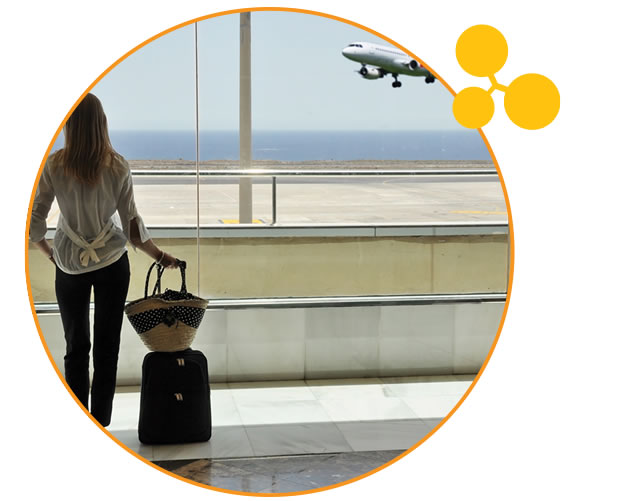
Arrival by rail
The railroad network connects all major Croatian cities except Dubrovnik. There are direct lines to Slovenia, Hungary, Italy, Austria, Switzerland, Germany, Bosnia-Herzegovina, Serbia, and Montenegro. There are indirect lines to almost all other European countries.
The Croatian Railways: www.hzpp.hr
Arrival by bus
A very comprehensive coach network connects all parts of the country. There are regular international coach services connecting Croatia with all neighbouring countries, as well as Austria, Switzerland, France, Germany, and Slovakia.
Bus services between major cities (intercity lines) are quite frequent, as are the regional services. The bus terminal with the most frequent services in Croatia is the Zagreb Bus Terminal.
Zagreb Bus Terminal: www.akz.hr
Arrival by boat
Croatian coastal towns and cities are served by ferry and ship services. The inhabited islands are linked with the mainland (and some of them also with other islands) by ferry/ship services. During the summer, the frequency of ferry routes is usually increased and fast hydrofoil services are added. The summer routes schedule normally remains in operation from 31 May to 28 September.
For customs information please visit the following website: www.carina.hr

6.2. Driving in Croatia
Driving regulations: Driving with dipped headlights is obligatory during winter time. The use of mobile telephones while driving is forbidden! The use of seat belts is obligatory. A reflective sleeveless jacket is an obligatory part of the emergency equipment of every vehicle.
Speed limits: In settled areas 50 km/h (31 mph), outside settled areas 90 km/h (55 mph), but 110 km/h (68 mph) on expressways and 130 km/h (80 mph) on motorways, unless otherwise indicated by road signs. If towing a trailer/caravan the speed limit is reduced to 90 km/h (55 mph). Minimum speed on motorways: 60 km/h (37 mph).
All motorists under 24 years of age must not exceed: 80 km/h (49 mph) on normal roads outside populated areas, 100 km/h (62 mph) on expressways and 120 km/h (74 mph) on motorways.
Further information about driving rules and requirements in Croatia:http://www.theaa.com/motoring_advice/touring_tips/croatia.pdf
Roadside assistance: Hrvatski Autoklub (HAK), telephone: 1987 (+385 1 987 if calling from a mobile phone)www.hak.hr
Driver’s License and Car Registration
Foreigners who have been granted a temporary stay or permanent residence in Croatia, as well as employees of foreign commercial, traffic, cultural and other agencies, may drive a motor vehicle if they have a valid foreign driver’s license for a period of one year following the day of entry into Croatia.
Foreigners who have been granted temporary stay in Croatia and are in possession of a vehicle registered abroad (with valid registration documents and insurance), may use their car not longer than three months following the day of entry into Croatia, after which period the vehicle should be re-registered in Croatia.
For more information please visit the website of the Ministry of Interior: www.mup.hr/
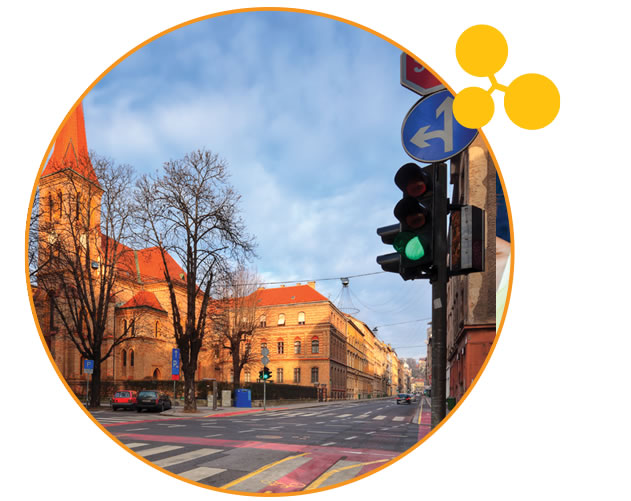
6.3. Accommodation
Renting an apartment is a process that needs to be started at least one month prior to arrival in Croatia. One can use the services of real estate agencies, a comprehensive list of which is collected on the website mentioned below:
Useful information on accommodation facilities (to buy or rent) in Croatia can be found on the following websites:
Real Estate Croatia: www.realestatecroatia.com
Go Home: www.gohome.hr
Airbnb: www.airbnb.com
For longer stays, a search through newspaper listings is also advisable. However, it is necessary to consult a person who speaks Croatian in order to translate the advertisements. The main newspaper for advertising accommodation is “Plavi oglasnik”. It can be bought nation-wide in Croatia or accessed online: www.oglasnik.hr. Another option is Njuškalo:
www.njuskalo.hr (in Croatian).
The monthly rate for a single-bedroom furnished apartment in cities varies from EUR 200-400 per month, depending on the quality and location. In most cases, it is necessary to pay a deposit in advance in the amount of one month’s rent, which is returned when moving out. There is a possibility of finding a roommate, and this is quite common in cities with lots of students. You can also use “Plavi oglasnik” to find a roommate.
A further possibility is living in student dormitories/housing. The student dormitories are managed by Studentski Centar, and there is a certain quota of spaces reserved for the University. It is the University's responsibility to contact Studentski Centar and recommend a foreigner to them – if there are rooms available for the required period, the foreign researcher/student can get a room in the dormitory.
Buying real estate has been made very easy for EU citizens since February 2009, i.e. their rights in buying and selling real estate are now equal to those of Croatian citizens. Other foreigners may encounter problems, as their rights will be subject to the reciprocity rule (i.e. equal to the rights of Croatian citizens in the real estate market of their home country) and an agreement from the Ministry of Justice may be needed.
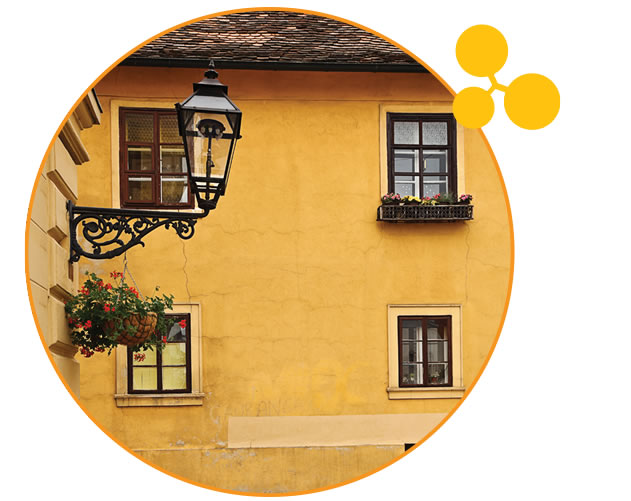
6.4. Learning Croatian
The official language in Croatia is Croatian. It is a South Slavic language and along with Serbian and Bosnian, it belongs to the Central South Slavic diasystem. In writing, the Croatian alphabet is used, which is a variant of the Latin alphabet. The alphabet was modelled after the Czech alphabet and contains one letter of the Latin script for each sound in the language (30 letters in total).
A foreigner may decide to learn Croatian in one of the private language schools offering Croatian for foreigners. An overview of the providers of Croatian courses for foreigners can be found on:
http://www.unizg.hr/homepage/learn-croatian/
|
Useful Croatian words and phrases |
|
|
English |
Croatian |
|
Yes |
Da |
|
No |
Ne |
|
Good morning |
Dobro jutro |
|
Good day |
Dobar dan |
|
Good evening |
Dobra večer |
|
Good night |
Laku noć |
|
Good bye |
Doviđenja |
|
Thank you |
Hvala |
|
Please |
Molim |
|
Do you speak English? |
Govorite li engleski? |
|
I don't understand |
Ne razumijem |
|
My name is... |
Zovem se... |
|
Excuse me |
Oprostite |
|
How much? |
Koliko? |
|
Enjoy your meal |
Dobar tek |
|
Cheers! |
Živjeli! |
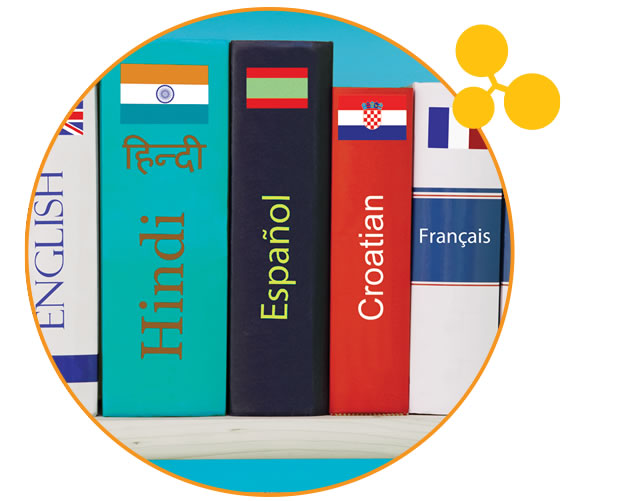
6.5. Culture & Nightlife
In most Croatian cities there are various cultural events on offer – music, theatre, cinema, and dance – as well as interesting monuments of Croatian cultural heritage. Please find more information on the following websites:
Culturenet.hr, a project initiated by the Ministry of Culture of Croatia and the Open Society Institute-Croatia aimed at pooling available information resources on Croatian culture: www.culturenet.hr
Ministry of Culture: www.min-kulture.hr
Croatian Cultural heritage: www.kultura.hr
For night-life ideas, consult, among others, the following websites:
Tulumarka – parties, happenings and night-life in all of Croatia: http://www.tulumarka.com (in Croatian)
Grad Rijeka-Kalendar – cinema, theatres, clubbing in Rijeka: https://www.rijeka.hr/teme-za-gradane/kultura-2/kulturne-i-druge-manifestacije/ >English/Italian
Tourist board of Split: http://www.visitsplit.com > English/Italian/German/French/Spanish
The biggest online calendar of events in Split: http://infozona.hr/kalendar > English
Croatian Tourist Board: croatia.hr
6.6. Moving with children
Validation of foreign elementary and secondary school qualifications
Foreign education qualifications of primary or secondary education for the purpose of continuation of primary or secondary education are recognized by the authority of the school at which the applicant wishes to pursue his/her education. Recognition of qualifications attesting the completion of primary education and general, gymnasium and art secondary education programmes (for the purpose of employment or continuation of education) is under the authority of Education and Teacher Training Agency. Details can be found at the website of the Education and Teacher Training Agency: www.azoo.hr (The recognition of a foreign educational qualification).
Organized preschool care
There is a large number of public and private preschool institutions in Croatia. Some of the international schools listed below also have preschool programmes. Foreigners with temporary stay permit in Croatia may enroll their child in a public or private kindergarten, but they will have to pay a full economic price because they do not have a permanent residence permit in Croatia.
The majority of public preschool institutions have lengthy waiting lists, therefore, inquiries about placements should be made directly and as soon as possible. Several private international kindergartens and playrooms (all located in Zagreb) are listed here: http://www.zagrebexpat.com/site/list/business-directory-kids-corner-kindergartens/103 (in English).

Schools where a foreign language is the main language:
There are several international schools in Zagreb, for example:
(listing is for informational purposes only and does not signify endorsement)
American International School of Zagreb - (International Baccalaureate Diploma): http://www.aisz.hr/
Deutsche Internationale Schule Eurocampus: deutscheschule.hr
Ecole Francaise Eurocampus: http://www.efz.hr/
XV Gymnasium (International Baccalaureate Diploma): mioc.hr
The Learning Tree International Kindergarten: tltkindergarten.com
XVI Gymnasium: gimnazija-sesnaesta-zg.skole.hr/
Matija Gubec International School: http://www.os-mgubec.hr/
6.7. Pets
Pets which are being imported, or which are travelling through for non-commercial purposes, in the company on their owner (up to 5 animals), will be allowed to enter Croatia only if the following conditions are fulfilled:
- they have a valid EU passport or health certificate (veterinary certificate)
- they do not come from an area in which infectious diseases are present and which that particular type of animal can transfer.
In the legal sense, pets are animal species such as: dogs, cats, ferrets (Mustela putorius), invertebrates (with the exception of bees and crustaceans), ornamental tropical fishes, amphibians, reptiles, birds (all species with exception of poultry), rodents and domestic rabbits.
Dogs, cats, and animals of the marten family must:
- be marked with a clearly legible tattoo or fitted with a microchip;
- have a passport issued by a licensed veterinary surgeon proving they have been vaccinated or re-vaccinated against rabies.
Entry into the territory of any EU Member State, including Croatia, of dogs, cats, and ferrets over three months of age is permitted if a minimum of 21 days have elapsed since the day the pet was first vaccinated.
For additional information please contact the Ministry of Agriculture: https://poljoprivreda.gov.hr/.
Download PDF with detailed information about non-commercial movement of pets into Croatia: http://www.veterinarstvo.hr/UserDocsImages/veteInspekcija/GVI/17_12-14_Brochure %20- %20dogs, %20cats %20nad %20ferrets %20english.pdf
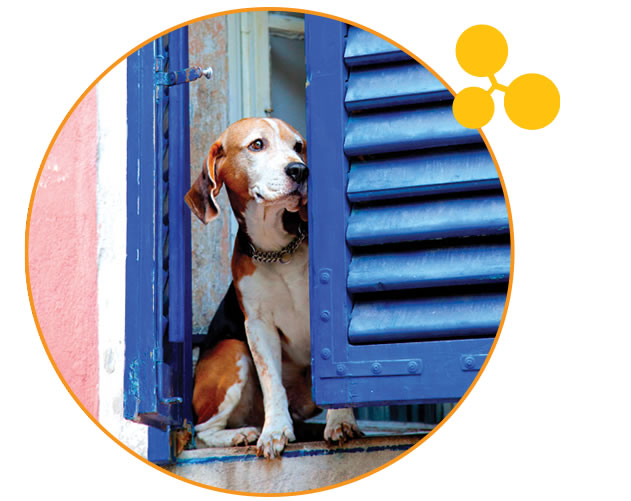

About us
7.1. EURAXESS
EURAXESS - Researchers in Motion is a programme established by the European Commission in 2004. The main goal of the programme is to enhance the mobility of researchers and to help develop research and science in the EU. Croatia joined the Euraxess programme in June 2008 and established the Euraxess Service Centre at the Agency for Mobility and EU programmes.
EURAXESS Jobs&Funding replaces the European Researcher’s Mobility Portal, which was created in 2003, and renewed in 2016. Through the Jobs&Funding portal, a researcher can find a wealth of constantly updated information on job vacancies, funding opportunities and fellowships throughout Europe. Researchers can post their CVs online. A company or a research institute can post job vacancies and search for CVs of international researchers. All services are free of charge.
EURAXESS Services was launched in 2004. It is a network of more than 570 centres and 1100 staff members located in 40 European countries. These centres assist researchers and their families in relocating to another country mainly regarding issues related to stay permit, employment, health and pension rights, etc.
EURAXESS Rights provides information regarding the European Charter for Researchers and the Code of Conduct for the Recruitment of Researchers. It was launched in 2005. The Charter describes the rights and duties of researchers, as well as research and funding institutions. The Code aims at ensuring equal treatment of all researchers in Europe and increasing transparency in their recruitment.
EURAXESS Worldwide is a network for European researchers working outside Europe. It has been launched in the ASEAN, Japan, China, India, Latin America and Caribbean States, North America, Korea, Australia, and New Zealand. It provides information about research in Europe, European research policy, opportunities for research funding, for international collaboration and for trans-national mobility.
For more information about EURAXESS, please visit the European EURAXESS Portal: https://euraxess.ec.europa.eu/ (in English/French/German/Italian/Spanish).

7.2. Agency for Mobility and EU Programmes
Following increased awareness on the importance of lifelong learning and aiming to create a society based on knowledge and to strengthen the competitiveness of Croatian citizens in the European labour market, the Government of the Republic of Croatia established the Agency for Mobility and European Union Programmes. As such, the Agency promotes the idea of mobility in education as a way to improve professional skills and knowledge, as well as to broaden personal horizons. The Agency's main task is to implement the two largest European Community programmes in the field of education, training, youth and sports – Erasmus+ and the programme Horizon Europe in the field of research and development. The Agency for Mobility and EU Programmes is also responsible for the implementation of the following networks and initiatives: Europass initiative, Eurodesk, EURAXESS, Euroguidance, CEEPUS, Bilateral scholarships, and ECVET.
By implementing the European Union programmes we offer the possibility of an international experience and additional training to Croatian citizens. We believe that at this point in time it is essential to encourage the cooperation of the Croatian and the European education systems. This consequently contributes to the development of a society based on knowledge, tolerance, multiculturalism and social inclusion and prepares participants to become competitive and employable in the European labour market. This links education activities with the business sector, thus contributing to the sustainable progress of the Croatian society.
It is our pleasure to see that our programmes have been widely recognized and used as an instrument for further professional and personal development.
Antonija Gladović, director
Agency for Mobility and EU Programmes: www.mobilnost.hr

7.3. EURAXESS Service Centre Zagreb
The objective of the EURAXESS Service Centre (ESC) is to assist researchers and their families during their period of mobility, in all matters relating to their professional and daily lives, helping them to reach adequate services for their needs, as well as to assist the core contact points in research institutions and inform a wider group of contact points about matters of interest to mobility.
Contact us and ask for information and customized assistance on the following topics:
- accommodation
- banking
- daycare, schooling & family related issues
- departure conditions/formalities
- entry conditions/visas
- health insurance
- IPR
- (research) job opportunities
- medical care
- pension rights
- recognition of diplomas
- research funding opportunities
- taxation/salaries
- unemployment
- work permit
- access to the culture of the host country/language courses
- career development
- research landscape.
ESC Zagreb staff
Ms Ana Ključarić, Head of Euraxess Service Centre
Ms Sandra Vidović, Senior Advisor
Ms Martina Kožul Kolarić, Senior Advisor
Ms Lana Jerolimov, Associate
Euraxess Service Centre Zagreb
Agency for Mobility and EU Programmes
Frankopanska 26, HR-10 000 Zagreb
E-mail: euraxess@mobilnost.hr
Telephone: +385 (0)1 500 5635
Fax: +385 (0)1 500 5699
www.euraxess.hr
7.4. EURAXESS Contact Points
LCP Rijeka
Iva Tijan
International Relations Office
University of Rijeka
Trg braće Mažuranića 10
51000 Rijeka
e-mail: iva@uniri.hr
tel: +385 51 406 583
fax: +385 51406 588
www.uniri.hr >English
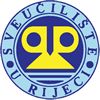
LCP Osijek
Klaudija Kulešević
International Relations Office
Josip Juraj Strossmayer University of Osijek
Trg Sv. Trojstva 3
31000 Osijek
e-mail: klaudijak@unios.hr
tel: +385 31 224 125
fax: +385 31 224 126
www.unios.hr >English
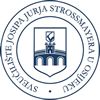
LCP Zagreb
Miroslav Rajter
Research Office
University of Zagreb
Trg maršala Tita 14
10 000 Zagreb
e-mail: mrajter@unizg.hr
tel: +385 1 46 98 136
fax: +385 1 46 98 136
www.unizg.hr >English
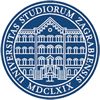
LCP Zagreb
Antonijo Šimunović
International Relations Office
University of Zagreb
Faculty of Science
Horvatovac 102 a
10 000 Zagreb
e-mail: international@dekanat.pmf.hr
tel: +385 1 46 06 091
fax: +385 1 46 06 041
www.pmf.hr >English
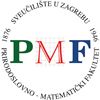
LCP Zadar
Darko Frleta
Research Office
University of Zadar
Ulica Mihovila Pavlinovića bb
23000 Zadar
e-mail: darko.frleta@unizd.hr
tel: + 385 23 200 740
fax: +385 23 316 882
www.unizd.hr >English
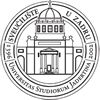
LCP Split
Aleksandra Banić
International Relations Office
University of Split
Livanjska 5
21000 Split
e-mail: abanic@unist.hr
tel: +385 21 440 342
fax: +385 21 440 344
web: www.unist.hr>English

LCP Dubrovnik
Ivan Jelčić
International Relations Office
University of Dubrovnik
Branitelja Dubrovnika 29
20 000 Dubrovnik
e-mail: ivan.jelcic@unidu.hr
tel: +385 20 44 57 38
fax: +385 20 43 55 90
http://www.unidu.hr (in Croatian)
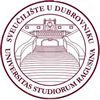
LCP Ruđer Bošković Institute
Lea Vrščaj
Department of Human Resources
Ruđer Bošković Institute
Bijenička cesta 54
10 000 Zagreb
e-mail: lea.vrscaj@irb.hr
tel: +385 1 45 61 170
fax: +385 1 46 80 084
www.irb.hr >English

LCP Technology Transfer Centre
Iva Gavran
Ivana Lučića 5
10000 Zagreb
e-mail: iva@sdewes.org
tel: +385 1 6168 567
www.fsb.unizg.hr/ctt/
LCP MedILS
Jelena Ružić
Acting Director
Mediterranean Institute for Life Sciences
Meštrovićevo šetalište 45
21000 Split
e-mail: jelena.ruzic@medils.hr
tel: +385 21 55 56 16
fax: +385 21 55 56 05
www.medils.org >English
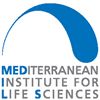
LCP MedILS
Irena Rajić
Administrative Services
Mediterranean Institute for Life Sciences
Meštrovićevo šetalište bb, 21 000 Split
E-mail: irena.rajic@medils.hr
Phone: +385 21 55 56 00
Fax: +385 21 55 56 05
http://www.medils.org >English

LCP Pula
Barbara Unković
Science and Research Office
Juraj Dobrila University of Pula
Zagrebačka 30
52100 Pula
e-mail: barbara.unkovic@unipu.hr
tel: +385 52 377 557
fax: +385 52 216 416
www.unipu.hr >English/Italian

Impressum
Published by: Agency for Mobility and EU Programmes
Compiled by: Ana Ključarić, Manda Japunčić, Sandra Vidović, Martina Kožul Kolarić, Lana Jerolimov Cetina
Edited by: Martina Kožul Kolarić
Graphic design: KO:KE kreativna farma
Proofread by: Inglosa, trade for translation services
Web Developer: Hajtek studio
Special thanks to:
Antonija Gladović, Agency for Mobility and EU Programmes
Neven Duić, PhD, National Coordinator of the Croatian Researcher’s Mobility Network
Ministarstvo znanosti i obrazovanja
Ministarstvo unutarnjih poslova
Ministarstvo vanjskih i europskih poslova
Ministarstvo financija, Porezna uprava
Hrvatski zavod za zdravstveno osiguranje
Hrvatski zavod za mirovinsko osiguranje
Agencija za znanost i visoko obrazovanje